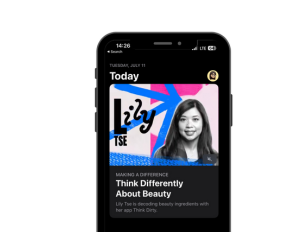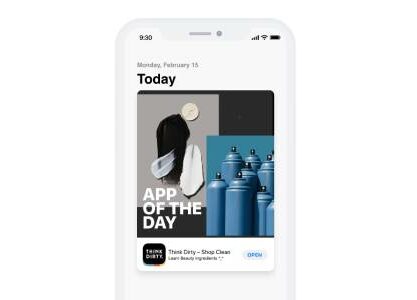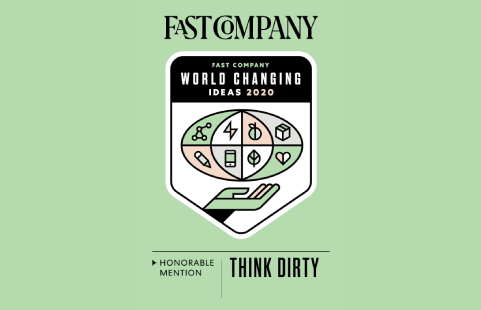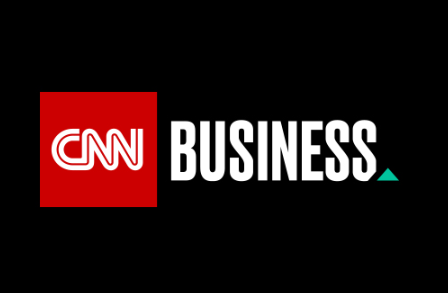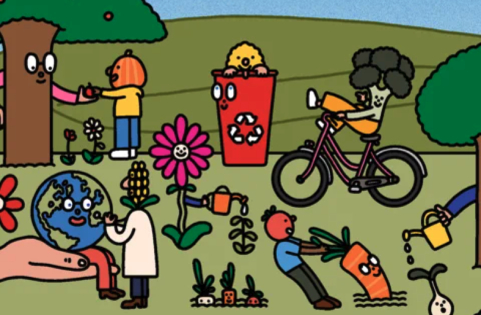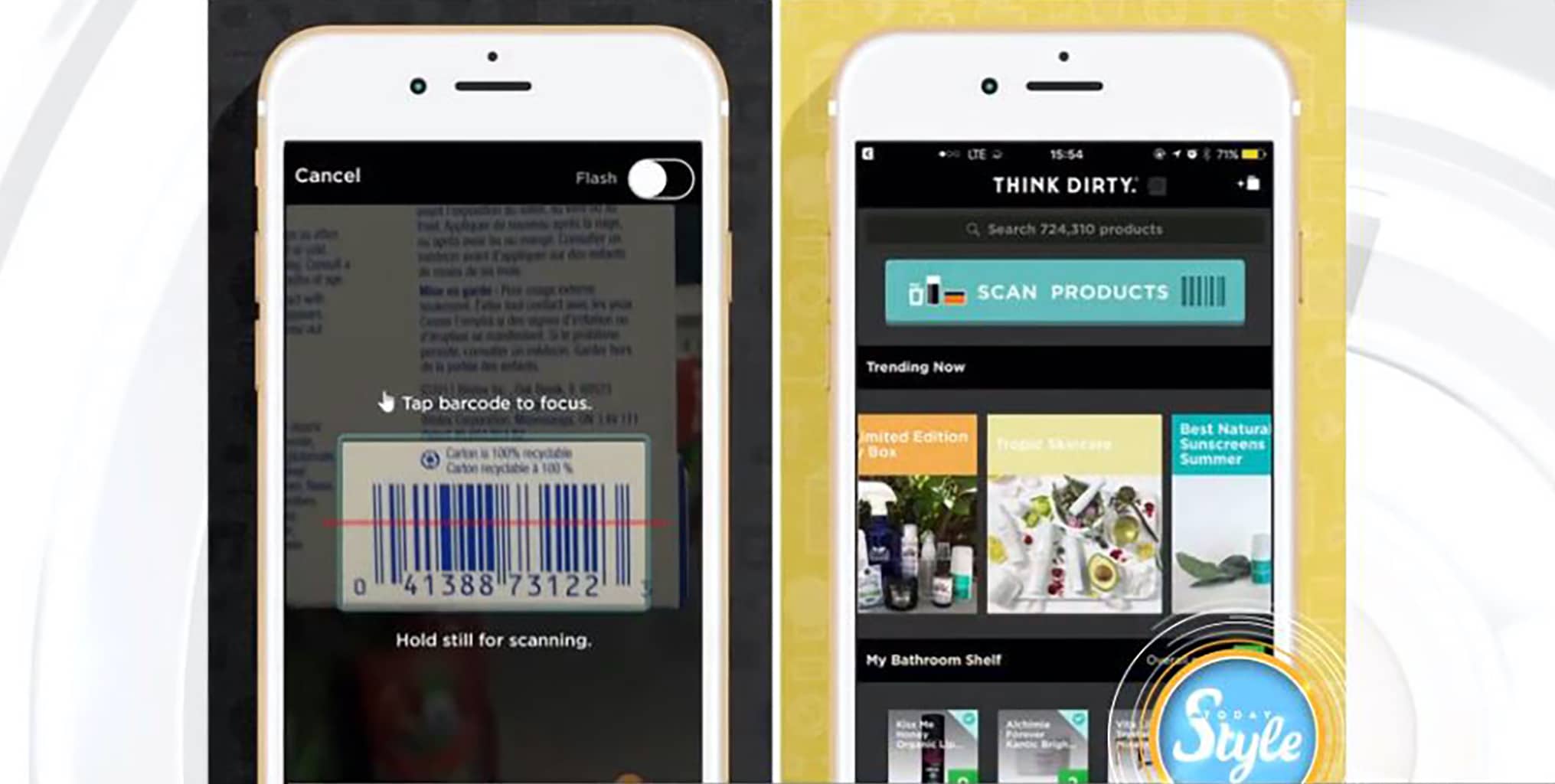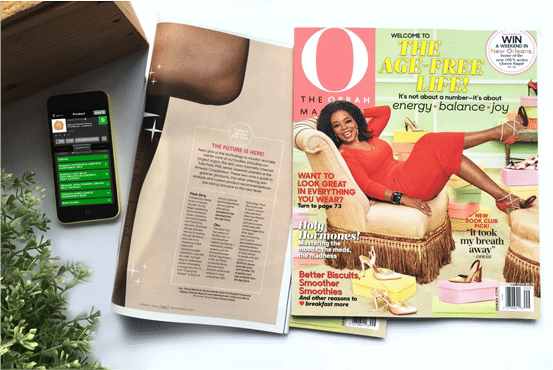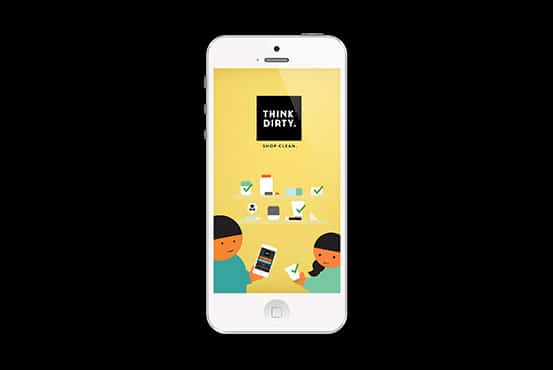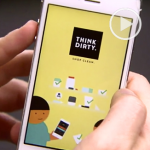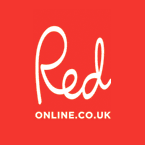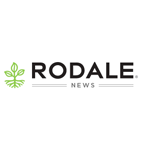Press Room
For press inquiries, please contact: [email protected]
The phrase “clean cosmetics” has been appearing across the beauty market in an attempt to sway consumer trust. Yet, many brands aligning themselves with the “clean beauty” movement continue to grapple with unclear definitions and shifting standards of what “clean” truly means.
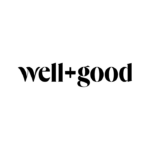 Download these 8 self-care apps to nourish your mind, body, and soul March 13, 2025
Download these 8 self-care apps to nourish your mind, body, and soul March 13, 2025Self-care apps are designed to make achieving your wellness goals and staying on top of your self-care practices simple. Here are eight to download, stat.
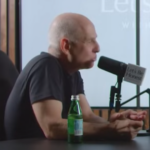 Picking a Brain Doctor’s Brain on Kids Playing Sports, What Supplements I Should Take, and Bipolar Disorder October 8, 2024
Picking a Brain Doctor’s Brain on Kids Playing Sports, What Supplements I Should Take, and Bipolar Disorder October 8, 2024Kristin Cavallari sat down with Dr. Amen to discuss everything brain-related: how looking at the brain changed the meaning of mental illness for him, how drugs and alcohol impact your brain health, tricks to calm your nervous system down, brain injuries that we may not even be aware of, every day harmful things were doing, plus simple things we can do to help the health of our brain, why flossing is so important, why thoughts can be too positive, what to be doing with our boys who play football, and why it’s so important to get anger out.
 5 small changes to reduce your electronic waste May 13, 2024
5 small changes to reduce your electronic waste May 13, 2024Tech Expert Lisa Chang shares tips that you can implement at home to make a positive impact on the growing electronic waste issue.
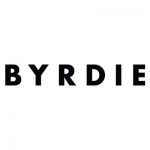 Checking Ingredient Lists Is Easy, Thanks to These 11 Websites January 16, 2024
Checking Ingredient Lists Is Easy, Thanks to These 11 Websites January 16, 2024Beauty consumers today are way savvier than they used to be and know that certain ingredients aren’t the best for their skin. Because of that, they make a conscious effort to learn more about the products they’re putting on their skin, which is a great first step to curating a safe skincare routine.
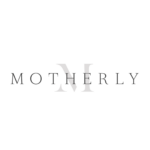 Chemicals to avoid during pregnancy and conception: A naturopathic doctor’s guide September 12, 2023
Chemicals to avoid during pregnancy and conception: A naturopathic doctor’s guide September 12, 2023Navigating the preconception and pregnancy stages can be an exciting journey, yet it may also be tinged with the natural worries about how best to care for your health and the well-being of your future baby.
 Think Differently About Beauty July 1, 2023
Think Differently About Beauty July 1, 2023Take a look at our latest feature for App Store Canada #VoicesOfChangeCanada. Featuring our founder, Lily Tse. She delves into the connection between women’s self-image and their beauty product shopping habits.
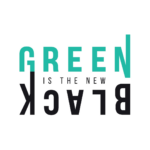 There’s An App For That: Tech Tools for the Planet June 8, 2023
There’s An App For That: Tech Tools for the Planet June 8, 2023It has never been easier to live consciously than it is today: bulk food stores in our neighbourhoods, online bazaars full of eco-friendly products, not to mention the amount of reusable or recyclable items available to us. But there is a whole heap of companies out there working hard to make sustainability even more convenient and accessible for everyone, especially through the modern world of apps.
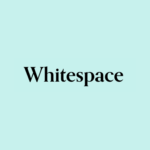 Whitespace x PFAs April 27, 2023
Whitespace x PFAs April 27, 2023Bubbly water drinks like La Croix and Bubly were favourites in my household until we learned about the insane levels of PFAs that are included. What are PFAs?
 Top Apps to Help You Live More Sustainably March 16, 2023
Top Apps to Help You Live More Sustainably March 16, 2023From finding nearby water bottle refill stations to calculating your carbon footprint to connecting with surplus food headed for the landfill, these apps help you live more sustainably.
 The 12 Best Fragrance-Free Shampoos That Won’t Irritate Your Scalp February 28, 2023
The 12 Best Fragrance-Free Shampoos That Won’t Irritate Your Scalp February 28, 2023Anyone with sensitive skin knows how valuable it is to be aware of what goes into your skincare products. One of the most common ways to avoid flare-ups is by choosing formulas without fragrance. The same approach should be applied to your hair care products, especially since scalp health should never be neglected and is essential to proper hair growth.
 Forever Chemicals: Is Make-Up Doing More Harm Than Good? February 28, 2023
Forever Chemicals: Is Make-Up Doing More Harm Than Good? February 28, 2023For those of us who choose to wear makeup, most often it’s to enhance the appearance of our skin; whether it be for that effortless glow or simply to convey the impression that we get a full eight hours of sleep. But with the recent news that major cosmetic brands are still selling makeup with ‘forever chemicals’ in the UK, are we actually doing ourselves more harm than good?
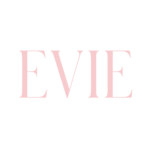 A Girl’s Beginner’s Guide To Endocrine Disruptors February 27, 2023
A Girl’s Beginner’s Guide To Endocrine Disruptors February 27, 2023Whether from the food you eat, the air you breathe, or the makeup you wear every day, you have been —and continue to be — exposed to endocrine disruptors.
 Many Personal Care Products Contain Harmful Chemicals February 15, 2023
Many Personal Care Products Contain Harmful Chemicals February 15, 2023Every day, we use soaps, lotions, deodorants, hair products and cosmetics on various parts of our bodies. But in recent years, an increasing number of reports have raised concerns about many of them.
 The Think Dirty Shop Offers an Exclusive Valentine’s Day Beauty Box February 13, 2023
The Think Dirty Shop Offers an Exclusive Valentine’s Day Beauty Box February 13, 2023Valentine’s Day is all about finding the perfect gift for a special someone, and that can be challenging at times. But don’t fret, the best gifts are those that are meaningful and come from the heart. Think Dirty knows a thing or two about good gifts, and the shop offers an exclusive Valentine’s Day beauty box that will make the perfect gift for anyone.
 Hair care alternatives for women worried about cancer risks tied to straightening products February 1, 2023
Hair care alternatives for women worried about cancer risks tied to straightening products February 1, 2023The National Institutes of Health released a study showing women who frequently use chemical hair-straightening products were at higher risk for uterine cancer.
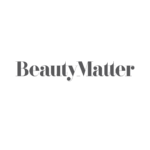 Agent Nateur: Fueling Organic Growth In A Pay-To-Play Era October 16, 2022
Agent Nateur: Fueling Organic Growth In A Pay-To-Play Era October 16, 2022The deodorant category doesn’t exactly have a chic history. From bulky plastic containers to highly alcohol- and aluminum-filled formulas, antiperspirants weren’t exactly the type of product one would display in a “shelfie.”
 The 7 best drugstore shampoos October 5, 2022
The 7 best drugstore shampoos October 5, 2022Dermatologists and hair experts recommended these drugstore shampoos that won’t break the bank
 Want products with clean ingredients? There’s an app for that September 7, 2022
Want products with clean ingredients? There’s an app for that September 7, 2022In theory, everyone wants to use “better for you” products, but whether the average consumer is willing to put the time and energy into finding those products can be the deciding factor. Think Dirty, Sephora, and Target are making it easy for consumers to find products with clean ingredients
 13 Sustainability Apps For Pro-Planet Scrolling August 31, 2022
13 Sustainability Apps For Pro-Planet Scrolling August 31, 2022Sustainable living apps cover all kinds of e-ground, from helping you find sustainable brands to minimizing food waste.
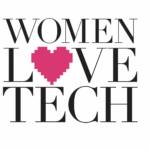 The Six Best Beauty Apps We Tried This Month July 29, 2022
The Six Best Beauty Apps We Tried This Month July 29, 2022Apps that offer delivery on demand have made it easier than ever to access our essentials. (Yes. That includes a midnight pizza order via Uber.). And now a new one is adding beauty to the list.
 The best food and cosmetic apps for a toxic-free lifestyle July 8, 2022
The best food and cosmetic apps for a toxic-free lifestyle July 8, 2022Living a healthy and toxic-free lifestyle can be challenging in a world filled with GMOs and chemical ingredients, especially when brands are not forthcoming with what’s actually in their products.
 Scorned by a viral beauty product, ex-DevaCurl users band together online June 7, 2022
Scorned by a viral beauty product, ex-DevaCurl users band together online June 7, 2022In a Facebook group born around allegations of hair damage caused by DevaCurl, thousands of former users are trying to help each other recover their curls.
 Want to Check the Ingredients in Your Beauty Products? April 30, 2022
Want to Check the Ingredients in Your Beauty Products? April 30, 2022When it comes to choosing beauty products, what’s most important to you? How does it look, what it does or, what its ingredients are? Sometimes, beauty industry jargon can be confusing, masking a product’s true ingredients and effectiveness.
 Tech entrepreneur Lily Tse wants you to Think Dirty (but shop clean) March 29, 2022
Tech entrepreneur Lily Tse wants you to Think Dirty (but shop clean) March 29, 2022“The most beautiful makeup for a woman is passion. But cosmetics are easier to buy,” says Lily Tse (BA 2001 UTSC), quoting fashion designer Yves St. Laurent. Tse is an entrepreneur and the CEO of Think Dirty, a mobile app that helps consumers understand the ingredients in their personal care products.
 The 8 Best Apps to Increase Sustainability in All Areas of Life March 3, 2022
The 8 Best Apps to Increase Sustainability in All Areas of Life March 3, 2022There are quite a few apps out there that help the environment by reducing your carbon footprint through planting trees, using alternative modes of transportation, and more. But did you know there’s more you can do to help the environment than biking to work and planting trees? Living more sustainably doesn’t have to be an all-or-nothing feat.
 11 Best Skin Care Ingredient Checkers January 21, 2022
11 Best Skin Care Ingredient Checkers January 21, 2022When it comes to choosing the products you use on your skin every day, how much do you pay attention to the ingredients inside those products? The industry jargon and product claims can make finding the right products a confusing and challenging task.
 How to purge risky chemicals from your beauty products December 30, 2021
How to purge risky chemicals from your beauty products December 30, 2021Eliminating endocrine disruptors is harder than you might think.
 4 Apps That Will Transform Your Skincare Routine In 2022 December 21, 2021
4 Apps That Will Transform Your Skincare Routine In 2022 December 21, 2021If you want to transform your skin, then try out these four apps to help your skin glow as well as keep you informed about skincare ingredients.
 Treehugger Picks Think Dirty: 2 Apps Help You Identify Toxic Ingredients in Skin Care and Personal Care Products November 10, 2021
Treehugger Picks Think Dirty: 2 Apps Help You Identify Toxic Ingredients in Skin Care and Personal Care Products November 10, 2021Did you know that more than half of the cosmetics sold in the United States and Canada contain toxic chemicals linked to serious health effects?
 6 Apps That’ll Help You Find Cleaner Beauty Products June 29, 2021
6 Apps That’ll Help You Find Cleaner Beauty Products June 29, 2021G.I. Joe said it best — knowing is half the battle. You owe it to yourself, your health, your body, your skin, and your loved ones to make informed choices by knowing the ingredients in the beauty products and cosmetics you use.
 How Your Brain Is Hurting or Helping Your Relationships, Memory & Life w/Dr. Daniel Amen (PART 2) EP 1121 June 9, 2021
How Your Brain Is Hurting or Helping Your Relationships, Memory & Life w/Dr. Daniel Amen (PART 2) EP 1121 June 9, 2021If it’s good for your heart, it’s good for your brain. In this episode Lewis and Dr. Amen discuss the biggest challenges Dr. Amen thinks the world is facing around brain health, how to optimize brain and heart health, how our brain health can affect the quality of our relationships, how constant overwhelm of dopamine is affecting our brain function, why working on improving our memory is necessary and practical ways to start working on it, and so much more!
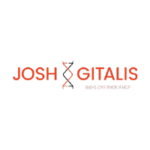 4 Technologies That Will Improve Your Life April 26, 2021
4 Technologies That Will Improve Your Life April 26, 2021Technology is the double-edged sword of the modern world. On one hand it brings us great convenience. And on the other hand technologies can greatly decrease our quality of life. One way we can deal with the negative effects of technology is to use technology itself – but we need to be discerning about what we use, and how.
 Featured on Earth Day 2021 April 23, 2021
Featured on Earth Day 2021 April 23, 2021The responsibility to protect our shared planet intersects every aspect of our lives. These apps make it easier to minimize waste, nurture a meaningful connection with nature, and preserve precious resources.
 Think Dirty App as App of the Day March 18, 2021
Think Dirty App as App of the Day March 18, 2021Want to know if the beauty, personal care, and cleaning products in your home have potentially toxic ingredients? Think Dirty has evaluated over 1.7 million products to help you identify those that might be harmful.
 The gadgets and tech that got us through 2020 November 25, 2020
The gadgets and tech that got us through 2020 November 25, 2020Smartphones, laptops and gaming consoles remain at the top of holiday wish lists, but this year we at CNN Business are reflecting on the tech, services and apps that truly made a big impact on our everyday lives…
 11 Apps That Will Help You on Your Sustainability Journey November 16, 2020
11 Apps That Will Help You on Your Sustainability Journey November 16, 2020Who says phones are just for scrolling yourself down a rabbit hole on TikTok and Instagram? As you continue your sustainability journey, you can actually use apps to your advantage. Some sustainability apps will help you calculate your carbon footprint…
 Ingredient checkers: Websites to Check Your Beauty Products November 1, 2020
Ingredient checkers: Websites to Check Your Beauty Products November 1, 2020When it comes to choosing beauty products, what’s most important to you? How it looks, what it does or, what its ingredients are? Sometimes beauty industry jargon can be confusing…
 4 ridiculously easy ways you can be more eco-friendly August 11, 2020
4 ridiculously easy ways you can be more eco-friendly August 11, 2020While a self-care routine is important — occasional self-indulgence is necessary to stay sane — beauty brands and cosmetics can be especially harmful to the environment. The Think Dirty app helps users…
 Beauty Labels 101: How to Skip the Toxins and Know Your Ingredients July 30, 2020
Beauty Labels 101: How to Skip the Toxins and Know Your Ingredients July 30, 2020As tempting as trendy packaging and clever buzzwords are, they don’t make a product safe.
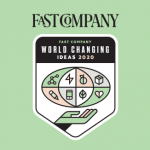 FAST COMPANY Announces Winners of 2020 World Changing Ideas Awards April 28, 2020
FAST COMPANY Announces Winners of 2020 World Changing Ideas Awards April 28, 2020The winners of Fast Company’s 2020 World Changing Ideas Awards were announced today, honoring the business, policies, projects, and concepts that are actively engaged and deeply committed to flattening the curve when it comes to the climate crisis, social injustice, or economic inequality.
 Apple App Store: Top 10 Apps For Earth Day April 22, 2020
Apple App Store: Top 10 Apps For Earth Day April 22, 2020You don’t have to go far to help care for Earth. These apps empower you to make a difference wherever you are.
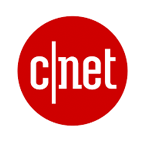 10 apps that help you be more sustainable in every area of life April 22, 2020
10 apps that help you be more sustainable in every area of life April 22, 2020These tech tools can help you buy eco-friendly clothes and products, and avoid wasting food.
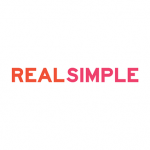 These 8 “Sustainable” Habits Aren’t as Green as You Might Think—Here’s How to Fix Them April 22, 2020
These 8 “Sustainable” Habits Aren’t as Green as You Might Think—Here’s How to Fix Them April 22, 2020Are your efforts to help the planet secretly hurting it? It might be time to rethink a few things.
 What to look for in your cleaning supplies April 22, 2020
What to look for in your cleaning supplies April 22, 2020The Coronavirus concerns have some people cleaning more than ever. The U.S. Poison Control Center calls have increased by 20-percent in the last three months as people have suffered from toxic exposure to cleaning supplies and disinfectants.
 Earth Day 2020: Top five must-have iOS apps to reduce your carbon footprint April 22, 2020
Earth Day 2020: Top five must-have iOS apps to reduce your carbon footprint April 22, 2020As the world is under lockdown to fight the spread of the coronavirus pandemic, we are seeing reports of wild birds, animals roaming around in the cities. Though, it gives us a really good refreshing break from the depressing news, but also make realize planet Earth can heal itself with or without humans.
 Why I Stopped Using DevaCurl January 31, 2020
Why I Stopped Using DevaCurl January 31, 2020I am suffering from severe hair and scalp issues. I used to recommend Devacurl, but not anymore.
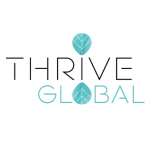 Happy Hormones: Step 3 – Cleanse (from toxic chemicals) January 30, 2020
Happy Hormones: Step 3 – Cleanse (from toxic chemicals) January 30, 2020Today I’m covering Step 3 of the Happy Hormone Code and that’s CLEANSE – minimizing your exposure to toxic chemicals and ensuring your detoxification systems are working.
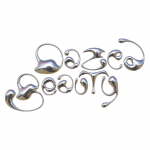 From ‘Fleek’ to ‘Beat’ – The Beauty Words that Defined the Decade December 30, 2019
From ‘Fleek’ to ‘Beat’ – The Beauty Words that Defined the Decade December 30, 2019As we continue to reflect on the past 10 years, we explore how the beauty dictionary got updated.
 The Clean Beauty Edit founder on how to achieve the skin of dreams December 25, 2019
The Clean Beauty Edit founder on how to achieve the skin of dreams December 25, 2019Do you long to glow and be forever youthful? Us too. However, it’s no easy feat finding beauty products that can deliver. Do they even exist?
 Tips to be fit: The price of looking good December 24, 2019
Tips to be fit: The price of looking good December 24, 2019Getting beautiful can cause problems. We most often think nothing of changing our hair color, getting a manicure or pedicure or putting on nail polish. These body enhancements can cause a number of health issues.
 European CEO reveals the top business leaders and companies of 2019 December 6, 2019
European CEO reveals the top business leaders and companies of 2019 December 6, 2019Every year the magazine shines a light on the best-performing companies and industry leaders, specifically honouring those that have managed to excel in terms of both strategy and sustainability.
 Are ‘What’s in your Beauty Product’ Apps a Blessing or a Curse? November 22, 2019
Are ‘What’s in your Beauty Product’ Apps a Blessing or a Curse? November 22, 2019Apps like ‘Think Dirty’ reveal what you’re really using on your skin and hair – including allergens and carcinogens – We explore how beneficial they are.
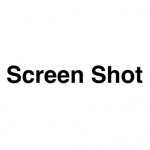 The global clean beauty industry is growing faster than ever. But is it actually clean? November 18, 2019
The global clean beauty industry is growing faster than ever. But is it actually clean? November 18, 2019From decades of beauty trends that sell you ‘this’ new magic ingredient, it seems as though consumers are trying to be more conscious—and beauty and skincare brands see that. So what is clean beauty? And what makes your bathroom cabinet dirty?
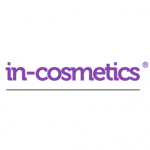 Ingredient apps and the importance of transparency November 13, 2019
Ingredient apps and the importance of transparency November 13, 2019Packaging is, more than ever, a vital part of the marketing mix. A new breed of shoppers is avidly checking labels for ‘good’ and ‘bad’ ingredients using a variety of apps and websites, plus knowledge gleaned from the plethora of on and offline media and beauty bloggers.
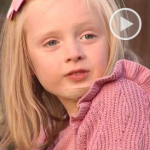 Hidden dangers: ‘Clean products’ praised as personal care alternatives November 9, 2019
Hidden dangers: ‘Clean products’ praised as personal care alternatives November 9, 2019The four key things experts say families should look for when shopping
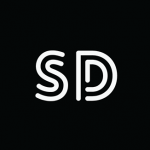 6 Of The Best Beauty Apps To Download Right Now November 6, 2019
6 Of The Best Beauty Apps To Download Right Now November 6, 2019Considering how much time we not only spend on our phones and how rely on them for just about everything, it shouldn’t come as a surprise that beauty brands have taken notice by stepping the app game up.
 Want to save the planet? There’s an app for that November 2, 2019
Want to save the planet? There’s an app for that November 2, 2019We’re all just trying to do our part, and these apps can make it a little easier.
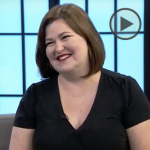 Green Tech: Apps That Are Good for The Planet August 13, 2019
Green Tech: Apps That Are Good for The Planet August 13, 2019It seems like we can’t go one week without another headline about the damage we’ve done to the planet, leading some to feel frustrated and like there’s nothing they can do about it. We’re all just looking to do our part in protecting the environment – and luckily, there’s an app for that.
 Need information on safe cosmetics? Here are some resources August 4, 2019
Need information on safe cosmetics? Here are some resources August 4, 2019When Ovie Marshall, an esthetician at The Spa at Aestique in Hempfield, decided to use natural beauty and skin care products, she says she found valuable information in Stacy Malkan’s 2007 book, “Not Just a Pretty Face: The Ugly Side of the Beauty Industry.”
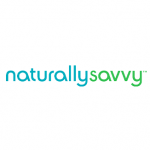 Dangerous Makeup: What You Don’t Know Can Hurt You August 4, 2019
Dangerous Makeup: What You Don’t Know Can Hurt You August 4, 2019Dangerous makeup. These are two words no one wants to hear in the same sentence. Yet there are harmful ingredients in the cosmetics we use to help enhance our appearance.
 Would You Put Your Skin’s Health In The Hands Of An App? July 28, 2019
Would You Put Your Skin’s Health In The Hands Of An App? July 28, 2019We live in a digital age; dependent on our iPhones for everything from telling the time to controlling our heating and even finding a life partner. So it was only a matter of time until technology took over looking after our skin.
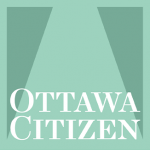 What’s in those household products? July 22, 2019
What’s in those household products? July 22, 2019You can read all the nutrition labels in the world and make excellent choices based on that information but what good will it do if the air you breathe around the apartment or the lotions you dutifully apply to your skin are more toxic than your teenage son’s gym bag?
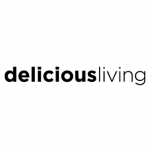 Natural beauty now. Tune in. Get gorgeous. July 1, 2019
Natural beauty now. Tune in. Get gorgeous. July 1, 2019Beauty is all around us. Channeling or harnessing it to be our best selves can be incredibly fun, and it can bring thought-provoking challenges as well. Here’s how to truly cultivate beauty from the outside, from choosing natural skincare strategies to making lifestyle pivots.
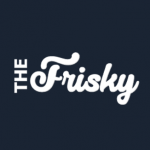 5 Clean Lifestyle Tips to Growing a Healthy Family June 29, 2019
5 Clean Lifestyle Tips to Growing a Healthy Family June 29, 2019As parents, we all want the best for children. Some areas seem more important than others to go the extra mile. We have 5 Quick Tips for to make healthier consumer choices.
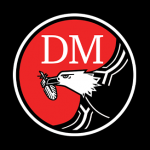 Decoding the science behind skincare ingredients June 21, 2019
Decoding the science behind skincare ingredients June 21, 2019Don’t know your AHAs from your HA, your retinol from your retin-A and what exactly vitamin C is doing to your skin? Here are some answers.
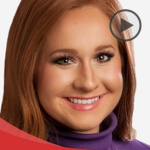 Abby’s Apps: Get clean with ‘Think Dirty’ June 10, 2019
Abby’s Apps: Get clean with ‘Think Dirty’ June 10, 2019In the first installment of Abby’s Apps, Abby takes a look at an app that could help users shift to a clean and healthy lifestyle. It’s called “Think Dirty” but really, you’ll want to use it for getting clean.
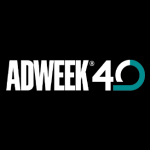 Like the Digital Revolution, Brands Need to Claim Responsibility for Decisions or Be Left Behind June 5, 2019
Like the Digital Revolution, Brands Need to Claim Responsibility for Decisions or Be Left Behind June 5, 2019It’s a necessity, otherwise they could go the way of Kraft Heinz.
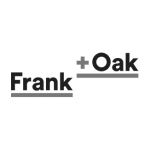 The best eco-friendly beauty brands May 15, 2019
The best eco-friendly beauty brands May 15, 2019With it being Earth Month, there’s no better time to reconsider your beauty regime. If you’re willing to spend extra dollars on organic produce, why lather your lashes with chemical-laden mascaras?
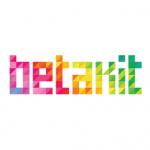 ELEVATE ANNOUNCES CANADA’S 50 MOST INNOVATIVE WORKPLACES May 7, 2019
ELEVATE ANNOUNCES CANADA’S 50 MOST INNOVATIVE WORKPLACES May 7, 2019Elevate has announced the 50 most innovative workplaces that will be officially recognized at The Elevated Awards. The Elevated Awards look to recognize the companies that make innovation a valued part of the way people think, work, and interact every day.
 Glam-Tech: 5 Best Beauty Apps You Should Download April 30, 2019
Glam-Tech: 5 Best Beauty Apps You Should Download April 30, 2019This is an excellent app, which allows you to scan the barcode or manually search for any beauty, skincare or haircare product.
Read Article
 ARE YOUR PRODUCTS REALLY CLEAN? April 24, 2019
ARE YOUR PRODUCTS REALLY CLEAN? April 24, 2019Companies are tricking their consumers into trusting their ingredients by labeling their products “natural” and “clean.” Are they telling the truth or is it a marketing scam?
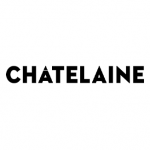 What Does ‘Clean Beauty’ Actually Mean? April 23, 2019
What Does ‘Clean Beauty’ Actually Mean? April 23, 2019How to decode labels, understand ingredient lists and find products that are truly healthier for your body and the planet.
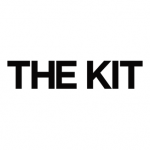 10 CONTROVERSIAL BEAUTY INGREDIENTS TO KNOW ABOUT April 19, 2019
10 CONTROVERSIAL BEAUTY INGREDIENTS TO KNOW ABOUT April 19, 2019And the safe alternatives we’re loving.
 Tech on Tuesday: Skin Care Apps April 2, 2019
Tech on Tuesday: Skin Care Apps April 2, 2019Adults of all ages still struggle with breakouts, blackheads and other skin issues. In this week’s Tech on Tuesday, we check out some skin care apps to help you put your best face forward.
 Best apps to help prepare for spring cleaning 2019 March 19, 2019
Best apps to help prepare for spring cleaning 2019 March 19, 2019You don’t need Marie Kondo to declutter your house. Just get some of these apps.
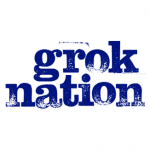 Clean Mama shares how to tackle spring cleaning March 8, 2019
Clean Mama shares how to tackle spring cleaning March 8, 2019The cleaning influencer offers tips along with her new book release.
 Eight Ventures Selected by the SheEO Network for Funding March 5, 2019
Eight Ventures Selected by the SheEO Network for Funding March 5, 2019The newest eight ventures selected by the SheEO network for funding this year have been announced.
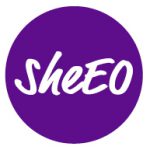 2018/2019 SheEO Ventures March 4, 2019
2018/2019 SheEO Ventures March 4, 2019Together, the SheEO network and SheEO Ventures are taking on the world’s to-do list, which means their business models and outcomes help achieve the UN’s Sustainable Development Goals (SDGs).
 Alum wants you to detoxify your beauty cabinet, takes her app to CBC’s Dragons’ Den February 22, 2019
Alum wants you to detoxify your beauty cabinet, takes her app to CBC’s Dragons’ Den February 22, 2019Lily Tse wants you to think dirty and buy clean. The U of T Scarborough alum started thinking about the chemicals in personal care and beauty products after her mother’s breast cancer diagnosis. She did some digging…
 Think Dirty on Dragon’s Den February 13, 2019
Think Dirty on Dragon’s Den February 13, 2019An entrepreneur seeks investment for her app that reveals the toxic ingredients found in beauty products.
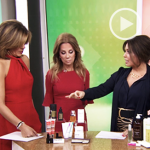 The best clean beauty products to try right now February 6, 2019
The best clean beauty products to try right now February 6, 2019Clean beauty is not just a trend, it’s a movement. TODAY style contributor Bobbie Thomas stops by to talk to Kathie Lee and Hoda about why it’s all the buzz. Plus, Bobbie shares some of her favorite products.
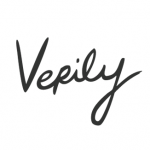 Why (and How) I’m Making the Switch to Non-Toxic Beauty Products January 23, 2019
Why (and How) I’m Making the Switch to Non-Toxic Beauty Products January 23, 2019Non-toxic or “clean” products—everything from household cleaners to baby supplies to beauty products—have been on the rise in recent years…I didn’t see what all the fuss (and a few extra bucks) was about. That is, until I found myself struggling to get pregnant.
 Digitaal opruimen als Marie Kondo January 17, 2019
Digitaal opruimen als Marie Kondo January 17, 2019Kan jouw huis wel een opruimbeurt gebruiken, maar heb je geen idee waar je moet beginnen? Dan kun je natuurlijk naar de Japanse opruimgoeroe Marie Kondo kijken op Netflix. Maar we helpen graag een handje door je vijf apps te geven waarmee…
Read Article
 The Top Apps For Success In 2019 January 10, 2019
The Top Apps For Success In 2019 January 10, 2019There are so many apps out on the market it can be really hard to choose which are the best for you. Here’s a list of my favorite apps in different categories…If you’re looking for the best apps to help you make 2019 your most successful year yet, here they are!
 Find out what’s in your cosmetic products January 9, 2019
Find out what’s in your cosmetic products January 9, 2019Mobile applications make it easier to track ingredients in skincare and makeup products.
 Apps to Help You Keep Your New Year’s Resolutions December 28, 2018
Apps to Help You Keep Your New Year’s Resolutions December 28, 2018Whether you want to get fit or find a new job, these apps will help you stay on track and make sure you don’t abandon your New Year’s resolutions by mid-January.
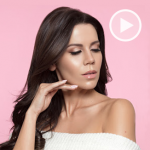 THE DIRTY TRUTH ABOUT SKINCARE … Products to AVOID! December 18, 2018
THE DIRTY TRUTH ABOUT SKINCARE … Products to AVOID! December 18, 2018“Moving in to the New Year I’ve been taking a closer look at what I’m putting on my skin to improve it.”
“Moving in to the New Year I’ve been taking a closer look at what I’m putting on my skin to improve it.”
 How well do you really know the products you use? December 17, 2018
How well do you really know the products you use? December 17, 2018From skin care to household items, hidden toxins in the products you use every day may be impacting your health.
 Exposure to chemicals in personal care products linked to earlier puberty in girls December 7, 2018
Exposure to chemicals in personal care products linked to earlier puberty in girls December 7, 2018Girls who are exposed before birth to chemicals commonly found in cosmetics, soaps, shampoos and other personal care products may begin puberty at an earlier age, according to a study published this week in the journal Human Reproduction.
 EWG News Roundup (12/7): EWG Analyzes Korean Beauty Trends, Coal Consumption Plummets and More December 7, 2018
EWG News Roundup (12/7): EWG Analyzes Korean Beauty Trends, Coal Consumption Plummets and More December 7, 2018This week, EWG released an analysis that breaks down the rising trend of serum and essence cosmetics.
 Chemicals found in perfume, hand creams, body lotion pushes early puberty in girls December 5, 2018
Chemicals found in perfume, hand creams, body lotion pushes early puberty in girls December 5, 2018Girls exposed to chemicals commonly found in toothpaste, makeup, soap and other personal care products before birth may hit puberty earlier, according to a new longitudinal study led by researchers at the University of California, Berkeley, United States (U.S.).
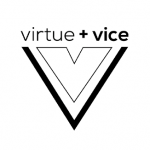 ETHICAL MAKEUP THAT’S ACTUALLY AFFORDABLE – GOOP DUPES November 28, 2018
ETHICAL MAKEUP THAT’S ACTUALLY AFFORDABLE – GOOP DUPES November 28, 2018I believe that toxin-free, sustainable, and ethical fashion should be accessible to all. And I think the same should go for the products we put on our skin.
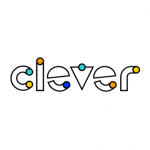 5 Chemical Products You Need to Get Out of the House November 15, 2018
5 Chemical Products You Need to Get Out of the House November 15, 2018In your heart of hearts, you know you should probably live with fewer chemicals. But why, exactly?
 Apps will reveal what’s really in your makeup November 14, 2018
Apps will reveal what’s really in your makeup November 14, 2018Think Dirty and other apps let shoppers scan for toxic ingredients in cosmetics such as the Drop Dead Red lipstick once touted by Kendall Jenner.
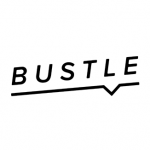 17 Non-Toxic Beauty Products I Used During My Cancer Treatment October 23, 2018
17 Non-Toxic Beauty Products I Used During My Cancer Treatment October 23, 2018When battling cancer, it’s truly amazing what a swipe of bold red lipstick or a simple sheet mask can do for you physical and mental wellbeing…
 How to green your beauty routine: 6 popular product picks October 20, 2018
How to green your beauty routine: 6 popular product picks October 20, 2018Green beauty — products containing all-natural ingredients — is now a multi-billion dollar market.
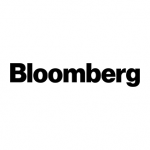 Apps Will Reveal What’s Really in Your Makeup October 19, 2018
Apps Will Reveal What’s Really in Your Makeup October 19, 2018Think Dirty and other apps let shoppers scan for toxic ingredients in cosmetics such as the Drop Dead Red lipstick once touted by Kendall Jenner.
 Kendall Jenner’s fave lipstick is (big surprise) bad for your health October 19, 2018
Kendall Jenner’s fave lipstick is (big surprise) bad for your health October 19, 2018Want to know if the beauty products you’re buying are bad for you? There’s an app for that.
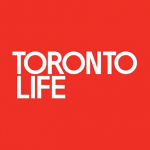 Torontonians who are shaking up the tech sector October 4, 2018
Torontonians who are shaking up the tech sector October 4, 2018Lily Tse founded Think Dirty, an app that educates consumers about ingredients in health and beauty products.
 This Makes No Scents: Fragrance is Toxic October 2, 2018
This Makes No Scents: Fragrance is Toxic October 2, 2018I’m a reformed scent-a-holic. For years, I believed the more fragrance, the better. Pile it on!…But then my body rebelled. And yours might be, too, you just don’t realize it yet.
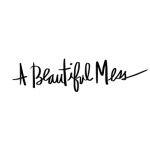 FIVE APPS I’M LOVING LATELY September 24, 2018
FIVE APPS I’M LOVING LATELY September 24, 2018“I always love seeing what other apps people are using and I’ve gotten a few really great recommendations over the past year, so I thought I’d share a few that I’m loving (and using) lately.”
 5 Apps That Tell You What’s In Beauty Products Because Knowledge Is Power September 21, 2018
5 Apps That Tell You What’s In Beauty Products Because Knowledge Is Power September 21, 2018“G.I. Joe said it best — knowing is half the battle. You owe it to yourself, your health, your body, your skin, and your loved ones to make informed choices by knowing the ingredients in the beauty products and cosmetics you use.”
 Your A-to-Z Guide to Skin Care Today August 9, 2018
Your A-to-Z Guide to Skin Care Today August 9, 2018THE CULT OF skin care seems to have reached a fever pitch, with women (and men) accumulating costly, pleasingly packaged products to arrange in their bathrooms at a new pace. Self-taught enthusiasts, known as the “skintelligentsia,” exchange…
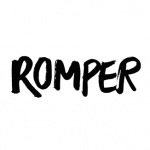 What Are The Safest Beauty Products To Use? This App Will Tell You August 7, 2018
What Are The Safest Beauty Products To Use? This App Will Tell You August 7, 2018While many people can relate to scrutinizing ingredient lists at the grocery store, we often ignore what beauty and skincare products be sinking into our pores. Even if said products, from sunscreen to moisturizers to…
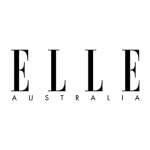 5 Apps To Make You More Environmentally Conscious July 30, 2018
5 Apps To Make You More Environmentally Conscious July 30, 2018In between checking your Insta feed or seeing what’s happening on Snapchat, why not download a couple of our suggested apps? Our recommendations are perfect anyone looking to up their eco-conscious game.
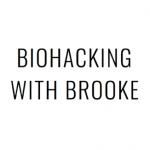 WHY YOU NEED MY NEW FAVORITE APP: “THINK DIRTY” July 20, 2018
WHY YOU NEED MY NEW FAVORITE APP: “THINK DIRTY” July 20, 2018“First, let me start off by saying I am an app minimalist. I’m currently still in the Dark Ages with my iPhone 6S 16GB, so I barely have room for Gmail and text threads. I’m extremely judicious with app downloads, but my new discovery–the “Think Dirty” app–was a no-brainer!”
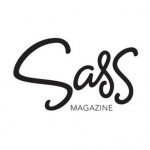 Girl’s Guide to Going Cruelty-Free July 20, 2018
Girl’s Guide to Going Cruelty-Free July 20, 2018Walking into a drugstore and seeing endless aisles of makeup can be overwhelming. Now try to narrow those products down into ones that don’t test on animals…We owe it to our furry friends to shop cruelty-free! Here are some ways to get started:
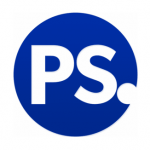 What Happened When I Tried Nontoxic Makeup For 90 Days July 11, 2018
What Happened When I Tried Nontoxic Makeup For 90 Days July 11, 2018I love makeup and make no apologies for it. I consider makeup a tool for boosting my mood or highlighting my favorite features, but I recently started to question my embrace of it. While listening to my local NPR station, I heard experts discussing a recent study about chemicals in cosmetics. I thought: could my form of self-expression be dangerous?
 【專欄作家:混血孖囡懶媽媽】一個適合天然有機控、成份控媽媽使用的APP July 11, 2018
【專欄作家:混血孖囡懶媽媽】一個適合天然有機控、成份控媽媽使用的APP July 11, 2018“奶媽我可能職業病的關係,在未懷珍珠(大孖)奶茶(細孖)時已經好注意平時用的護膚品、彩妝及日用品的成分是否溫和、天然、安全或者有機。要詳細了解每一種產品的成分並非一般媽媽可以做到,就算產品公司聲稱使用的製造成分天然溫和,都有機會只是宣傳手法…
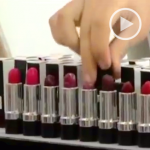 Lead in lipstick June 15, 2018
Lead in lipstick June 15, 2018“You have to disclose if you’re buying a house there could potentially be lead in there. So why is it OK that we can educate people that there’s no lead on the walls, but then we can have it in our lipstick which is on our face?”
 Electric Runway Episode 77: Think Dirty, Shop Clean May 18, 2018
Electric Runway Episode 77: Think Dirty, Shop Clean May 18, 2018What exactly is inside the beauty and cosmetics products that many of us use on our skin every day? It’s a simple question with a not-so-simple answer…
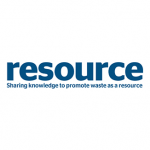 Chemical Attraction: How cosmetics can damage the planet May 16, 2018
Chemical Attraction: How cosmetics can damage the planet May 16, 2018The Think Dirty app: “A great example of a resource that allows people to decipher all of the confusing and unpronounceable chemical names so that they can assess the safety of their favorite cosmetic products.”
 Battling dull skin and bad breakouts? You might want to switch to green beauty May 15, 2018
Battling dull skin and bad breakouts? You might want to switch to green beauty May 15, 2018With equal parts science and nature, the world of green beauty makes a strong case for itself.
 How harmful are the personal products you use on a daily basis? Find out with new app April 25, 2018
How harmful are the personal products you use on a daily basis? Find out with new app April 25, 2018As a first-time mom, I am trying to use products on my daughter that don’t contain harmful ingredients, so I immediately downloaded the app to find out if I was succeeding.
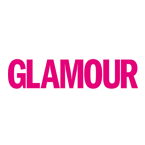 Your need-to-know guide on the difference between vegan, natural, organic, clean and fairtrade beauty March 27, 2018
Your need-to-know guide on the difference between vegan, natural, organic, clean and fairtrade beauty March 27, 2018Discover what’s really in your products…
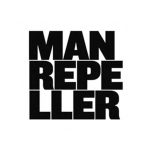 I Tested 5 Natural Beauty Foundations and Now I’m Hooked March 22, 2018
I Tested 5 Natural Beauty Foundations and Now I’m Hooked March 22, 2018I scrutinized ingredient lists and cross-checked with the Think Dirty app database to make sure the foundations I was testing were free of parabens, phthalates, sulfates and petrochemicals (the main substances that the clean beauty community is passionate about avoiding).
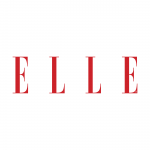 The 15 Best Beauty Apps to Download Right Now March 9, 2018
The 15 Best Beauty Apps to Download Right Now March 9, 2018We put together a list of the best beauty apps on the market, from skin analysis to up-to-the date hair conditions based on weather. Check out the 15 beauty apps you’ll probably want to start downloading now.
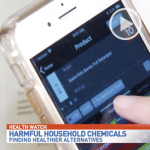 A cleaner clean: Ditching household chemicals March 1, 2018
A cleaner clean: Ditching household chemicals March 1, 2018A growing amount of research suggests chemicals in everyday products may put us at risk for health problems. A mom in Pensacola is trying to protect her family, by “switching and ditching” products around her house.
 Looking for Endo-friendly Beauty Products? Here’s What You Need to Know! February 28, 2018
Looking for Endo-friendly Beauty Products? Here’s What You Need to Know! February 28, 2018Gupta recommends downloading an app called Think Dirty to help determine which products are the healthiest choices for your body and skin. “It’s a wonderful tool,” Gupta added. “You just scan the barcode of your toothpaste, deodorant, moisturizer or whatever beauty or hygiene product you’re inquiring about, and you can see how clean or dirty it is for your skin.”
 Are You Using Toxic Beauty Products? Check This App to Find Out February 13, 2018
Are You Using Toxic Beauty Products? Check This App to Find Out February 13, 2018“While we often think to clean up our homes and detox our cleaning supplies in preparation for the new season, the designer also recommends spring-cleaning your makeup collection. And there’s an app that makes it easy.”
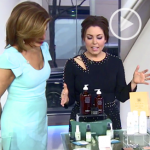 Everything you need to know about the Clean Beauty movement January 16, 2018
Everything you need to know about the Clean Beauty movement January 16, 2018Everybody’s talking about the Clean Beauty movement, but TODAY style expert Bobbie Thomas warns consumers to beware of buzzwords like “natural” because they’re not regulated. She also explains what the symbols on beauty product labels mean.
 The Top 16 Apps That Will Guarantee You More Success In 2018 January 15, 2018
The Top 16 Apps That Will Guarantee You More Success In 2018 January 15, 2018Think dirty is one of my favorite apps that I have been using in 2017. It is quick and easy and it can completely change the health of you and your family as you know it!
 Your Chapstick Could Be Toxic to Your Health – Here’s Why January 4, 2018
Your Chapstick Could Be Toxic to Your Health – Here’s Why January 4, 2018Dry lips can be borderline unbearable, and sometimes it feels as if the things we use to fix that problem only make it worse. Why is this?
 How Ruby Rose Achieves a Unicorn Effect December 4, 2017
How Ruby Rose Achieves a Unicorn Effect December 4, 2017What changed my routine and really my life is the Think Dirty app. I’m obsessed. All these things I thought were good, or natural, were actually loaded with carcinogens.
 What Happened When I Tried Nontoxic Makeup For 90 Days December 3, 2017
What Happened When I Tried Nontoxic Makeup For 90 Days December 3, 2017I began by researching a safe cosmetic “starter kit,” focusing on the body, shower, skin care, and makeup products I use on a daily basis. The FDA has shockingly little authority over cosmetics (more on that later), and my research taught me that terms like organic, eco, natural, and nontoxic have no legal or regulatory meaning when it comes to cosmetics. Luckily, there are helpful online resources and apps like Think Dirty (available on iPhone) that help consumers understand what exactly goes into the products they use.
 Understanding Audiences November 17, 2017
Understanding Audiences November 17, 2017Founder and CEO of Think Dirty Lily Tse explains how she was successful at getting the word out about her company and the importance of being authentic when telling your story.
 How dirty are you? Think Dirty app rates everyday products’ potential danger November 7, 2017
How dirty are you? Think Dirty app rates everyday products’ potential danger November 7, 2017“I might need to clean up my act. At least when it comes to the products I use.”
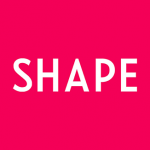 How to Make the Switch to a Clean, Nontoxic Beauty Regimen October 25, 2017
How to Make the Switch to a Clean, Nontoxic Beauty Regimen October 25, 2017Here’s what happened when one beauty writer went on a beauty detox in a quest to green her beauty routine.
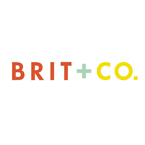 The Most Trusted Sources for Green Beauty Education October 3, 2017
The Most Trusted Sources for Green Beauty Education October 3, 2017With eco-friendly beauty buys becoming more of an industry standard, now is the perfect time to arm ourselves with the best resources that can help us make better choices one purchase at a time. But what exactly is green beauty and how can you get on board? Here, a few amazing platforms that make natural beauty education a reality.
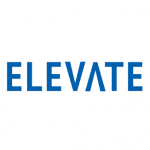 ThinkDirty’s Lily Tse: Founders must work on what really matters September 9, 2017
ThinkDirty’s Lily Tse: Founders must work on what really matters September 9, 2017Lily Tse left agency life to become an entrepreneur, and now she’s on a mission to help people purchase beauty products that are good for you and good for the environment. Read on to see her global idea for tech and innovation.
 These 28 Drugstore Finds Prove Nontoxic Makeup Doesn’t Have to Be Expensive August 24, 2017
These 28 Drugstore Finds Prove Nontoxic Makeup Doesn’t Have to Be Expensive August 24, 2017The truth is that the FDA can only take action once a dangerous product is on the market and it can prove it’s harmful to consumers. The good news? There are resources out there, like Think Dirty (available on iTunes), that help consumers understand what goes into the products we use.
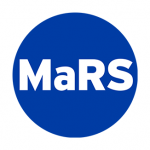 What they don’t tell you about being an entrepreneur April 24, 2017
What they don’t tell you about being an entrepreneur April 24, 2017Content that is meant to help and inspire entrepreneurs is actually altruistic, unrealistic and idealistic, ignoring the realities of starting a company… We suggest that you avoid the meaningless, rainbow-coloured, unicorns-and-rabbits advice plastered all over social media. Here’s some real advice and interesting ideas from entrepreneurs and experts who have failed, succeeded and then failed again.
 Scandal Proof Your Corporate Culture April 19, 2017
Scandal Proof Your Corporate Culture April 19, 2017In this presentation, Lily talks about the importance of purpose and inclusivity in building the right culture.
 Did you know about Sophia? April 17, 2017
Did you know about Sophia? April 17, 2017Many cosmetic and personal-care products contain ingredients that can have negative environmental or health impacts, she says…
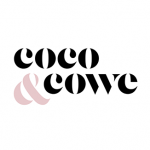 A Conversation with Lily Tse April 12, 2017
A Conversation with Lily Tse April 12, 2017“I recently had a conversatin with Lily Tse, the founder of the Think Dirty app. With her family having a history of cancer, Lily decided to take matters into her own hands and become knowledgable about what exactly goes into our most tried and trusted beauty products. Find the full interview below.”
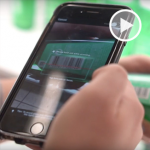 The Prevail Project: Lily Tse April 1, 2017
The Prevail Project: Lily Tse April 1, 2017Advocating for people and the planet through better beauty products: my passion is promoting health and happiness through education.
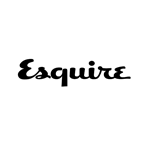 An App that Cuts the Crap March 3, 2017
An App that Cuts the Crap March 3, 2017Just what is in our personal care products, and more importantly, how safe are they?
 The Unstoppable Rise of Clean Beauty and the Celebs Betting Their Careers on the Movement: An Insider’s Look March 3, 2017
The Unstoppable Rise of Clean Beauty and the Celebs Betting Their Careers on the Movement: An Insider’s Look March 3, 2017Emma Watson knows the power of a press tour. Being that she’s spent half of her life on the Harry Potter circuit…
 Bathroom Confidential March 1, 2017
Bathroom Confidential March 1, 2017Just what is in our personal care products, and more importantly, how safe are they?
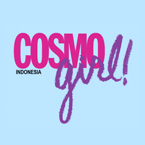 6 Aplikasi Beauty yang Perlu Kamu Download February 28, 2017
6 Aplikasi Beauty yang Perlu Kamu Download February 28, 2017Zaman sekarang, kayaknya nggak ada alasan untuk nggak tampil cantik. As we know, saat ini beauty product semakin beragam dan lebih mudah untuk didapatkan secara online. Selain itu, kalau kamu…
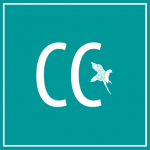 AWEAR World S01 Episode 50: Think Dirty + The Search for Clean Beauty February 21, 2017
AWEAR World S01 Episode 50: Think Dirty + The Search for Clean Beauty February 21, 2017Lily shares some of the dirty secrets behind the beauty industry, and talks about how she thinks “beauty” is the next industry in line to truly push forward in an organic, sustainable direction.
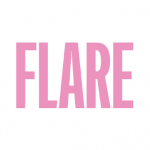 This Canadian Beauty App Reveals the Most (& Least!) Natural Prods January 12, 2017
This Canadian Beauty App Reveals the Most (& Least!) Natural Prods January 12, 2017Toronto-based app Think Dirty is shaking up the cosmetic world and revolutionizing how we buy makeup
 The Changemakers January 4, 2017
The Changemakers January 4, 2017The world is a mess right now. An outsider’s look into the current state of affairs would show a global community in shambles, suffering from a laundry list of maladies in need of a serious remedy…
 How Lily Tse’s Think Dirty app helps shoppers pick better beauty products January 4, 2017
How Lily Tse’s Think Dirty app helps shoppers pick better beauty products January 4, 2017Toronto-based Lily Tse was 12 years into a marketing career when her itch to solve a problem-the lack of available information about the safety of beauty products-became stronger than her desire for stability. The Think Dirty app launched for iOS in 2013,…
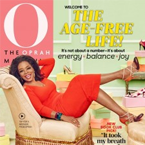 The Skin You Are In. O Magazine, September Issue 2016 September 5, 2016
The Skin You Are In. O Magazine, September Issue 2016 September 5, 2016The Future is Here. Apps give us the technology to monitor and take better care of our bodies, including our largest organ, the skin…
 Health Risks and 5 Other Secrets Barcodes Can Tell You September 2, 2016
Health Risks and 5 Other Secrets Barcodes Can Tell You September 2, 2016The humble barcode has been a regular part of grocery store shopping since 1974, with the first ever product being scanned on June 26th of that year. Since then, they have become almost invisible, with some package designs finding ingenious ways to hide…
 Health Risks and 5 Other Secrets Barcodes Can Tell You September 2, 2016
Health Risks and 5 Other Secrets Barcodes Can Tell You September 2, 2016Well, from where we stand, it doesn’t have a formal definition. It’s a movement that means different things for different people. At its core, it’s reexamining how our beauty products are affecting our health and eliminating the things that make cosmetics…
 Disruptors Pitch: Think Dirty August 6, 2016
Disruptors Pitch: Think Dirty August 6, 2016The Think Dirty app provides users with a way to learn about the potentially toxic ingredients in cosmetics and personal care products. Customers can scan the product barcode and Think Dirty will give them easy-to-understand info on the product…
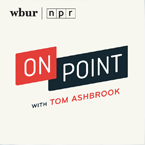 The Battle To Regulate Cosmetics August 6, 2016
The Battle To Regulate Cosmetics August 6, 2016What’s in your cosmetics and can it be harmful to your health? We’ll look at the new calls for — and resistance to — deeper regulation of the cosmetics industry…
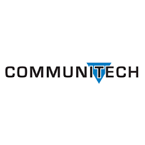 10 Canadian Women Who Are Taking the Tech World By Storm June 20, 2016
10 Canadian Women Who Are Taking the Tech World By Storm June 20, 2016The top 25 female-led startups to participate in the Fierce Founders Bootcamp were announced today. The founders will complete the first phase of programming at the Communitech Hub July 19- 21, 2016, and then return to the Hub from August 23-25, 2016….
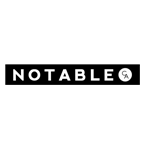 10 Canadian Women Who Are Taking the Tech World By Storm May 18, 2016
10 Canadian Women Who Are Taking the Tech World By Storm May 18, 2016It’s no secret that men dominated the tech world at one point in time. But it’s no longer just a man’s world. The times have changed and women are killing it on the technical turf, especially here on Canadian soil. These are the women who have…
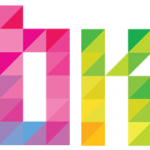 THINK DIRTY’S LILY TSE SAYS PURPOSE, INCLUSIVITY ARE KEY TO BUILDING THE RIGHT COMPANY CULTURE April 19, 2016
THINK DIRTY’S LILY TSE SAYS PURPOSE, INCLUSIVITY ARE KEY TO BUILDING THE RIGHT COMPANY CULTURE April 19, 2016For Lily Tse, the founder and CEO of Think Dirty, understanding the importance of purpose and inclusivity are crucial to building a strong company with the right culture.
 Non-Male, Non-White People Are Still in the Margins of Tech and Entrepreneurship March 8, 2016
Non-Male, Non-White People Are Still in the Margins of Tech and Entrepreneurship March 8, 2016One look at the average startup event and you’d think entrepreneurship has a strict membership policy: must be young, male and white. Why?
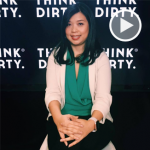 Disruptor 1: Think Dirty – BNN News March 3, 2016
Disruptor 1: Think Dirty – BNN News March 3, 2016Compiled by BNN staff 1:41 PM, E.T. | March 3, 2016 The Think Dirty app provides users with a way to learn about the potentially toxic ingredients in cosmetics and personal care products. Customers can scan the product barcode and Think Dirty…
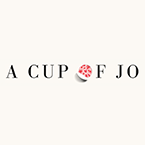 What Apps Do You Use? February 16, 2016
What Apps Do You Use? February 16, 2016Our team at Cup of Jo has some serious old-school tendencies. Caroline still uses a day planner. But we’ve each managed to get hooked on a few apps that we now can’t imagine living without. Here are our current must-haves, and we’d love to hear…
 Think Dirty, An App To Help Understand The Safety of Cosmetics January 24, 2016
Think Dirty, An App To Help Understand The Safety of Cosmetics January 24, 2016In this podcast, we explore how Lily has set up Think Dirty, how she uses the power of the crowds to help as well as exploring the ever important business model.
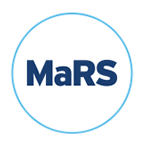 #HumansofMaRS: Be healthy, Think Dirty – MaRS January 6, 2016
#HumansofMaRS: Be healthy, Think Dirty – MaRS January 6, 2016Lily Tse, founder and CEO of Think Dirty, wants to come clean on the personal care products you use every day. Think your “all natural” face cream is a healthy alternative? Convinced your “organic” lip gloss is the real deal? Think again. They might actua…
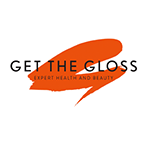 Desktop Delving: Think Dirty App CEO Lily Tse on the tech that makes her tick November 25, 2015
Desktop Delving: Think Dirty App CEO Lily Tse on the tech that makes her tick November 25, 2015What apps do you depend on when you’re the founder of an app yourself? ‘Safe’ cosmetics whizz Lily Tse tells us what scores screen time in her world Ever wondered what’s really hiding in your wash bag? Lily Tse is committed to helping you to find…
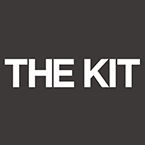 10 Ways to Get Clean with Think Dirty November 9, 2015
10 Ways to Get Clean with Think Dirty November 9, 2015When you scroll through your Instagram feed, it’s likely that you’ll see a post or two from a health-conscious or foodie friend with the hashtags #cleaneats or #healthy. It’s no doubt that healthy eating has become a large trend among the X and Y generati…
 How female entrepreneurs hope to spark a new wave of women-led ventures October 1, 2015
How female entrepreneurs hope to spark a new wave of women-led ventures October 1, 2015“I feel like these entrepreneurship programs for women have some parallel qualities, it’s definitely helpful,” said Lily Tse, founder of the Think Dirty beauty and cosmetics app, and one of six startups that received $5,000 and a placement at the DMZ from…
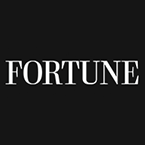 Jessica Alba’s Honest Company is expanding-just as shoppers are questioning “natural” products September 8, 2015
Jessica Alba’s Honest Company is expanding-just as shoppers are questioning “natural” products September 8, 2015This week, The Honest Company, the Los Angeles-based sustainable consumer products retailer co-founded by Alba and recently valued at $1.7 billion, debuts a new line of cosmetics and facial care products.
 26 Underrated Apps Every Twentysomething Should Download Right Now August 24, 2015
26 Underrated Apps Every Twentysomething Should Download Right Now August 24, 2015We asked followers of the BuzzFeed Community for their favorite underrated app. Here are their go-to downloads. Note: Submissions have been edited for length and/or clarity. Want to be featured on BuzzFeed? Follow the BuzzFeed Community on…
 8 Apps All Beauty Junkies Need August 17, 2015
8 Apps All Beauty Junkies Need August 17, 2015We lead busy, busy lives. And we definitely don’t always have time to catch up on all of our favorite beauty blogs and watch countless hours of how-to tutorials. Since we’re all about upgrading our lives with our favorite calendar apps and…
 ‘Think Dirty’ App Allows Users To Learn Which Controversial Ingredients Are In Their Cosmetics August 1, 2015
‘Think Dirty’ App Allows Users To Learn Which Controversial Ingredients Are In Their Cosmetics August 1, 2015If you are familiar with the natural makeup industry, then you are well aware of the controversial ingredients frequently found in mainstream cosmetics and hygiene products. For those unfamiliar, the story is simple: researchers have repeatedly found ques…
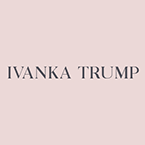 Dirty Girls May 11, 2015
Dirty Girls May 11, 2015Our art director turned us all on to the Think Dirty app several months ago. Since then, we’ve been scanning like crazy and comparing notes. We polled the team to get everyone’s must-have beauty buys—and then we ran the app to see which products come up clean, according to Think Dirty…
 Introducing the winners of the MasterCard Women in Entrepreneurship program May 11, 2015
Introducing the winners of the MasterCard Women in Entrepreneurship program May 11, 2015Back in March, we launched MasterCard Women in Entrepreneurship, a $60,000 program designed to fuel the success of six women-led startups through cash prizes and placement at the DMZ. The program, supported by a generous donation from MasterCard, aims to strengthen the DMZ’s community of female founders and co-founders and support these women as they scale their businesses…
 Think Dirty May 11, 2015
Think Dirty May 11, 2015Her findings confirmed Leonard’s report: that the beauty industry is very loosely regulated. Despite claims that products are “all natural” or “organic,” the lack of standardization in cosmetic labeling meant that many potentially toxic chemicals…
 Smartphone apps put green living practices in the palm of your hand April 9, 2015
Smartphone apps put green living practices in the palm of your hand April 9, 2015Array of guides from Hong Kong organisations and others offer information on sustainable seafood, recycling points, water dispensers, energy efficiency and air quality…
 Conosciamo insieme alcune delle applicazioni beauty più recenti March 8, 2015
Conosciamo insieme alcune delle applicazioni beauty più recenti March 8, 2015With so much technology and information, today, we should always be well-tuned everything. Here are some of the latest applications beauty and useful for the newspaper…
 5 mobile apps to help us buy better March 4, 2015
5 mobile apps to help us buy better March 4, 2015Mobile connectivity has increased our ability to make in-situ informed choices about many things. Through the Internet of Things, from Withings wifi scales to the up and coming Apple watch, our bodies and our actions are becoming evermore quantified…
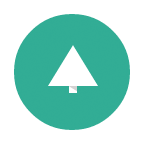 Canopy.co – Issue 32 – SHOP CLEAN March 4, 2015
Canopy.co – Issue 32 – SHOP CLEAN March 4, 2015Personal care products often include ingredients that pose a risk to our health. Navigating labels for harmful chemicals can be confusing and time intensive. To help simplify conscious shopping, we partnered with Think Dirty to recommend the most verified…
 Easy Tips for Making Your Home Healthier March 4, 2015
Easy Tips for Making Your Home Healthier March 4, 2015If you don’t have time to deep clean, use our tips and top gadget picks to help you live a healthier life while saving time…
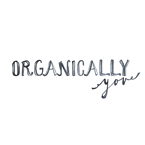 An App To Help You Think Dirty (In A Clean Way) March 4, 2015
An App To Help You Think Dirty (In A Clean Way) March 4, 2015I don’t know about you guys, but sometimes I just get exhausted trying to read and understand every ingredient on every label. As a newbie to the whole natural lifestyle thing, I can feel a bit overwhelmed and discouraged by it all…
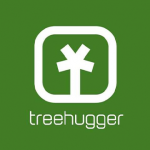 14 healthy living apps to help you kick off a green new year January 8, 2015
14 healthy living apps to help you kick off a green new year January 8, 2015If one of your resolutions for the new year is to live greener, more healthily, and more in line with your values, these apps will give you a hand.
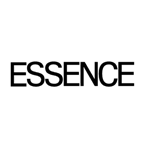 Best 2014 Beauty Apps December 6, 2014
Best 2014 Beauty Apps December 6, 2014THINK DIRTY Finally! An app that determines how toxic your favorite beauty products are. Just scan any product and receive a ranking of the ingredients and more importantly, a safer alternative…
 5 Common Toxic Ingredients in Your Beauty Products November 13, 2014
5 Common Toxic Ingredients in Your Beauty Products November 13, 2014Is shampoo making you fat? Is soap causing cellulite? We look at the common household toxins known to disrupt hormone function. For more, download the Think Dirty app to help you navigate unwanted chemicals while shopping and read more from David Suzuki…
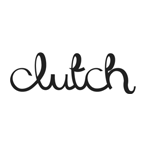 5 Fun Beauty Apps You Need to Download November 12, 2014
5 Fun Beauty Apps You Need to Download November 12, 2014If you’re always stuck trying to figure out just what DMDM Hydantoin is and why it’s in your favorite beauty products, this app is perfect for you…
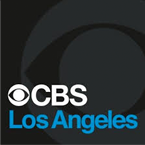 Groups, Lawmakers Push For Safer Cosmetics November 5, 2014
Groups, Lawmakers Push For Safer Cosmetics November 5, 2014LOS ANGELES (CBSLA.com) — Kirsty King from Mid-City LA is a sales director for an advertising agency, a business where image is everything. “This is my makeup I use most days when I’m working. I just put a light coat on across my face,” King says. “This is a product I’ve used for quite a while.”…
 11 Apps, die Deinen Alltag leichter machen October 17, 2014
11 Apps, die Deinen Alltag leichter machen October 17, 2014Nein, mit Sex hat das nichts zu tun. Durch das Scannen des Barcodes eines Produkts, vor allem bei Kosmetikprodukten, verrät „Think Dirty“ die genauen Inhaltsstoffe des Produkts.
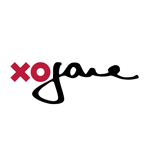 The Beauty App That’s Detoxifying My Makeup Collection While Driving Me Slightly Crazy October 15, 2014
The Beauty App That’s Detoxifying My Makeup Collection While Driving Me Slightly Crazy October 15, 2014I gave myself a mission: to find beauty products I love, using Think Dirty to help me make wise decisions for my long-term wellness.
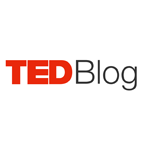 25+ apps to make your everyday life easier September 19, 2014
25+ apps to make your everyday life easier September 19, 2014This app tells you exactly what’s in the personal care product you’re about to buy. You scan the barcode, and it shares information about potentially harmful ingredients (and gives alternatives, if you want them). It’s useful for fact-checking label claims like “all-natural” and “organic.” Kyle Shearer of our Events Workgroup says, “It helps me make informed choices on products that I am bringing home.”
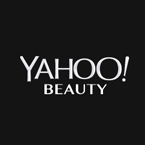 10 Must-Try Beauty Apps September 17, 2014
10 Must-Try Beauty Apps September 17, 2014The iPhone 6 comes out in two days (and the much-debated Apple Watch launches early next year). Not to mention, iOS 8 is here, meaning nearly everyone has Apple on the brain these days. Whether you’re just upgrading your software, or going all in, we thou.
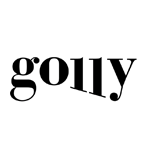 Beauty Marks September 3, 2014
Beauty Marks September 3, 2014First things first: Think Dirty is not a porn streaming service, despite what the name may lead you to believe. Launched in 2013, it’s an inspired app for consumers who are unaware of the harmful chemicals that may be marinating on the bathroom shelf.
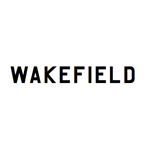 Pretty Poison – iOS app Think Dirty is cleaning up the toxic cosmetics industry August 27, 2014
Pretty Poison – iOS app Think Dirty is cleaning up the toxic cosmetics industry August 27, 2014In ancient Greece both men and woman covered their face in makeup made from white lead – needless to say they were poisoning themselves. Unfortunately, when it comes to the beauty industry, it seems not much has changed in the course of two millennia…
 Concerned about cosmetics? 3 apps can help August 26, 2014
Concerned about cosmetics? 3 apps can help August 26, 2014Reading teeny ingredients lists is tough, especially when you’re out shopping. These three free apps make it easy to evaluate a product’s ingredients and narrow down your choices. Just scan a product’s bar code to see the ingredients it contains a…
See article
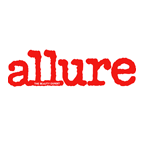 8 New Beauty Apps You Need to Download Now August 22, 2014
8 New Beauty Apps You Need to Download Now August 22, 2014Before your mind gets stuck in the gutter, this app determines how toxic your beauty products are—a pretty brilliant idea, since ingredient details aren’t always easy to find. Scan a product’s barcode or search the database by product name; the app ranks
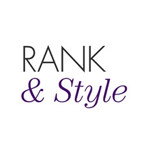 TALKING TOP TENS: LILY TSE FOUNDER AND CEO, THINK DIRTY August 18, 2014
TALKING TOP TENS: LILY TSE FOUNDER AND CEO, THINK DIRTY August 18, 2014Lily is the Founder and CEO of Think Dirty, a mobile app that makes reading cosmetic and personal care product labels and learning about ingredients simple, easy and fun.
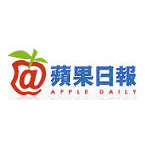 幾多毒素搽喺身?用app查吓化妝品 June 24, 2014
幾多毒素搽喺身?用app查吓化妝品 June 24, 2014女士們每日用在皮膚的產品,例如護膚品、化妝品、沐浴用品等,動輒有十多種,你知道當中有多少產品含刺激性或潛在毒素嗎?應用程式 Think Dirty聲稱可以測化妝品毒性。記者測試數款化妝及潔膚護理產品,部分國際品牌致癌性竟爆表,究竟這些app可信度有多高?
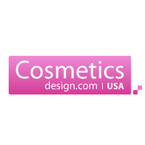 Mobile Apps: opportunity or risk for beauty brands June 24, 2014
Mobile Apps: opportunity or risk for beauty brands June 24, 2014With app which center on beauty products now hitting consumers’ screens thick and fast, CosmeticsDesign take a look at whether the swiftly evolving mobile space poses an opportunity for brands, or a risk.
 Microbeads Ban: New ‘Think Dirty’ App Helps You Figure Out Toxic Ingredients In Your Makeup & Food June 20, 2014
Microbeads Ban: New ‘Think Dirty’ App Helps You Figure Out Toxic Ingredients In Your Makeup & Food June 20, 2014These little beads seem helpful when we’re exfoliating skin, but they’re actually harmful environmental concerns, damaging the purity of lakes and rivers. Microbeads are often listed as polyethylene and polypropylene. However, many consumers are unaware of the ingredients they use in cosmetics.
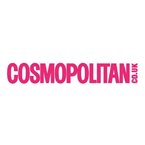 ‘Think Dirty’ app reveals toxic beauty buys June 18, 2014
‘Think Dirty’ app reveals toxic beauty buys June 18, 2014Miranda Kerr is a big fan of using natural beauty products, so what’s the betting she’d have some fun with this clever detoxing app? Maybe you consider yourself a bit of a beauty ingredients whiz; you can reel of the benefits of hyaluronic acid…
 Lab Rat: Your Beauty Products Are Pretty Dirty June 16, 2014
Lab Rat: Your Beauty Products Are Pretty Dirty June 16, 2014But when I stumbled upon the new beauty app ThinkDirty, I realized it was time to pay more attention to what I’m putting on my face. The app allows you to scan the bar code on a beauty product — and then spits out a ranking based on the amount of cancer-causing substances in the product, ranking it on a scale from 0 to 10, with 10 being the most “dirty” in a totally nonsexual way.
 What’s really in that lipstick? Now there’s an app to tell you April 22, 2014
What’s really in that lipstick? Now there’s an app to tell you April 22, 2014The Think Dirty app lets you scan barcodes to learn if a product contains potentially harmful substances.
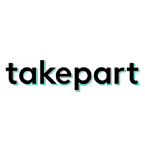 This Simple App Tells If Your Beauty Products Contain Beastly Chemicals April 8, 2014
This Simple App Tells If Your Beauty Products Contain Beastly Chemicals April 8, 2014At the end of the night when I suds up my face, I worry about removing all of my waterproof mascara. I’m not thinking about whether my skin-cleansing pads might make me sick. After all, I bought them at the local drugstore, not on the black market—and toxic chemicals are what the FDA is supposed to protect me from, right?
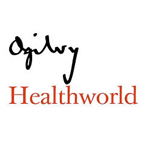 This Simple App Tells If Your Beauty Products Contain Beastly Chemicals April 8, 2014
This Simple App Tells If Your Beauty Products Contain Beastly Chemicals April 8, 2014We’re using an increasing number of cosmetic products on a daily basis, but as the beauty industry isn’t required to list ALL of the ingredients on their product labels, it begs the question; do we really know what we’re putting on to our skin?
 This App Helps You Think Dirty — Here’s Why That’s a Good Thing April 8, 2014
This App Helps You Think Dirty — Here’s Why That’s a Good Thing April 8, 2014It’s Earth Day! Yay! But to make it really count, why not start something now that you can do long after 4/22. We have an idea that deals with something you likely did to kick off your AM.
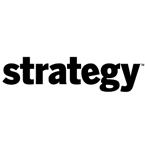 Think Dirty’s toxic test April 3, 2014
Think Dirty’s toxic test April 3, 2014It’s do or die time for cosmetic and personal care brands. Customers want goods they can trust won’t lead to serious health issues down the line, and retailers are backing them up by putting pressure on vendors to provide just that. Walmart and Target recently announced they’ve begun assessing and phasing-out products that contain harmful ingredients from store shelves. It’s a big, bold move that has set the tone for today’s health-conscious consumer landscape, and while the race is on to provide them with safer goods, there are also new platforms doing their bit to inform people about what they’re putting on their bodies.
 An App That Helps You Find the Safest Make-up April 2, 2014
An App That Helps You Find the Safest Make-up April 2, 2014Some of the ingredients in make-up might be harmful, but a new app helps users pick the products with the least-bad additives.
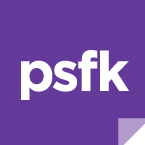 The Think Dirty app allows you to scan beauty products for potentially unhealthy chemicals. April 2, 2014
The Think Dirty app allows you to scan beauty products for potentially unhealthy chemicals. April 2, 2014The average woman uses 12 beauty products a day, and the average man uses 6, but all too often the ingredients inside these items remain a mystery. Because the cosmetics industry isn’t required to list all components on their labels, there didn’t seem to be much hope of ever finding out what we are putting on ourselves- until now. Enter the ‘Think Dirty’ app.
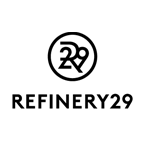 An App To Track The Nasty Chemicals In The Beauty Products You Put On Your Face April 1, 2014
An App To Track The Nasty Chemicals In The Beauty Products You Put On Your Face April 1, 2014The cosmetics industry isn’t required to disclose all of the unhealthy chemicals in its products. But with a new app, one daughter of a breast cancer survivor is enabling greater transparency for shoppers.
 This App Will Change The Way You Shop For Beauty Products April 1, 2014
This App Will Change The Way You Shop For Beauty Products April 1, 2014The cosmetics industry isn’t required to disclose all of the unhealthy chemicals in its products. But with a new app, one daughter of a breast cancer survivor is enabling greater transparency for shoppers.
 ‘Think Dirty’: An App That Reveals The Harmful Chemicals In Beauty Products April 1, 2014
‘Think Dirty’: An App That Reveals The Harmful Chemicals In Beauty Products April 1, 2014Toronto-based entrepreneur Lily Tse has created ‘Think Dirty’, an app that shows you the exact ingredients found in your facial wash or lipstick.
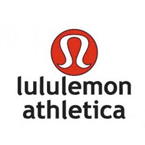 think dirty in order to shop clean March 7, 2014
think dirty in order to shop clean March 7, 2014Few of us really know what we are smearing on our faces, hands and bodies when we pick up creams and lotions these days. (Unless it’s coconut oil, then okay, you know.) But seriously, ever tried to pronounce those long, dinosaur-sounding words in most products’ ingredient list? Cue Think Dirty, an app* created by some innovative folks in Toronto, and used for deciphering what the heck is actually in our beauty products so we can make educated choices about them.
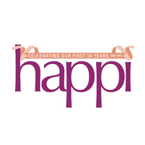 Sustainable Cosmetic Summit Is May 15-17 in New York City March 4, 2014
Sustainable Cosmetic Summit Is May 15-17 in New York City March 4, 2014Lily Tse, CEO and founder of Think Dirty, will demonstrate the pervasive influence mobile apps can have on consumers. The Think Dirty mobile application rates over 55,000 beauty products according to the health and safety risks of their ingredients. Consumers are using the mobile app to assess the safety of cosmetic products.
 Green issues at the agenda of the next Sustainable Cosmetics Summit in New York. March 1, 2014
Green issues at the agenda of the next Sustainable Cosmetics Summit in New York. March 1, 2014A second session will be devoted to digital marketing and will look at the impact of mobile devices and digital marketing on consumer behaviour towards personal care products. Lily Tse, CEO and founder of Think Dirty – a mobile application that rates over 55,000 beauty products according to the health and safety risks of their ingredients – will demonstrate the pervasive influence mobile apps can have on consumers.
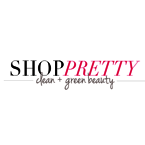 INGREDIENT APP: THINK DIRTY SHOP CLEAN February 7, 2014
INGREDIENT APP: THINK DIRTY SHOP CLEAN February 7, 2014The Think Dirty app is the perfect solution for beauty shopping. Simply open the app, scan the product and it’s info pops up on the screen for you.
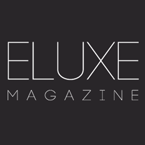 Top 5 Eco Apps to Make Your Life Greener January 24, 2014
Top 5 Eco Apps to Make Your Life Greener January 24, 2014Making time to consider the environment in your daily schedule isn’t always easy. Sometimes it’s just simpler and less time consuming to ignore your better judgment and throw that tuna can in the garbage or pick-up that cheap, drugstore lip gloss.
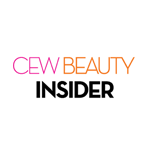 Beauty Apps Reveal Harmful Ingredients December 5, 2013
Beauty Apps Reveal Harmful Ingredients December 5, 2013New smart phone app Think Dirty is aiming to change the way consumers shop for beauty products. The apps allow shoppers to scan products on the spot to find out a product’s ingredient list. Some apps rank a product based on their ingredients, which can encourage or deter a sale.
 Your Black Friday Guide To Poison-Free Holiday Shopping November 28, 2013
Your Black Friday Guide To Poison-Free Holiday Shopping November 28, 2013The holiday shopping season officially kicks off on Black Friday, and so begins that annual hunt for the perfect present, at the best price — and with the fewest poisons.
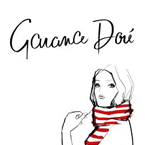 FROM THE BEAUTY CLOSET – THINK DIRTY November 26, 2013
FROM THE BEAUTY CLOSET – THINK DIRTY November 26, 2013Don’t go throwing out all of your beauty products…
 App Central for Nov. 23: Think Dirty, YouTube, IKEA Catalogue November 25, 2013
App Central for Nov. 23: Think Dirty, YouTube, IKEA Catalogue November 25, 2013This week’s featured apps are Think Dirty, YouTube and IKEA Catalogue.
 CFC Announces New ideaBOOST Cohort of Startups November 21, 2013
CFC Announces New ideaBOOST Cohort of Startups November 21, 2013Toronto’s ideaBOOST media and technology startup accelerator announced its latest cohort of six companies yesterday. The program takes place at the Canadian Film Centre’s Media Lab (CFC Media Lab). The swanky ceremony was hosted by CBC’s.
 The Green Edit: the organic beauty Christmas gift shopping guide November 21, 2013
The Green Edit: the organic beauty Christmas gift shopping guide November 21, 2013Think Dirty, Shop Clean: free A handy iphone app which is available free from the itunes store. Using barcode scanning technology to identify products and rate them on a scale of 0-10 based on product ingredient listings (0 being you can almost eat it, to 10 meaning that no green girl worth her kale would touch it) . Hailing from Canada, the app indicates if a product has any potentially harmful ingredients and allergens using The National Library of Medicine’s Hazardous Substances Data Bank , the Environmental Working Group and other not for profit organizations. With a clever design it makes shopping for your green friends and family more like a game than a puzzle.
 Lily Tse: Today’s Notable Young Entrepreneur November 20, 2013
Lily Tse: Today’s Notable Young Entrepreneur November 20, 2013Today’s Notable Young Entrepreneur is Lily Tse, who founded the Think Dirty app to educate consumers about the potentially toxic ingredients in cosmetics and personal care products. What was the.
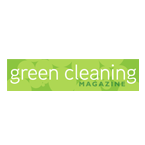 Is Your Makeup Safe? 2 New Apps Help You Find Out November 14, 2013
Is Your Makeup Safe? 2 New Apps Help You Find Out November 14, 2013Making an informed decision about cosmetics and personal care products just became a whole lot easier—thanks to the development of two new apps that will deliver specific product ratings and ingredient information right to your fingertips
 CTV BC: App checks for toxins in your makeup | CTV Kitchener News November 13, 2013
CTV BC: App checks for toxins in your makeup | CTV Kitchener News November 13, 2013A new app aims to inform customers of potential toxins that could be lurking in your makeup.
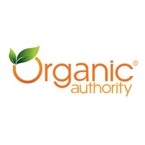 Toxic Cosmetics Exposed with ThinkDirty Mobile App November 12, 2013
Toxic Cosmetics Exposed with ThinkDirty Mobile App November 12, 2013Whoa. I think Grist has found one of the most helpful apps I’ve ever seen. The environmental news site recently reported on Think Dirty — a free app that tells you if a beauty product contains potentially toxic chemicals.
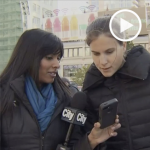 New app reveals ingredients in beauty products November 11, 2013
New app reveals ingredients in beauty products November 11, 2013CityNews reporter Saphia Khambalia with the app that lets you know the toxic chemicals you may be applying every day.
 ‘Think Dirty’ App Scans Cosmetics For Carcinogens, Reproductive Toxins, And Allergens Using Your Smartphone November 7, 2013
‘Think Dirty’ App Scans Cosmetics For Carcinogens, Reproductive Toxins, And Allergens Using Your Smartphone November 7, 2013 Uncovering those dirty cosmetics November 4, 2013
Uncovering those dirty cosmetics November 4, 2013Beauty Industry: App designed to help reveal potential toxins that exist in products
 Scanning apps help warn of chemicals in cosmetics October 30, 2013
Scanning apps help warn of chemicals in cosmetics October 30, 2013Consumers worried about what might be lurking within their cosmetics and skin care products can turn to new applications that scan bar codes to review the items for safety.
 In depth: What’s in your make-up? October 29, 2013
In depth: What’s in your make-up? October 29, 2013More and more women are asking questions about the safety of the ingredients used in their make-up products.
 How Clean is Your Beauty Routine? October 28, 2013
How Clean is Your Beauty Routine? October 28, 2013With labelling terms like organic, holistic, and natural dominating the beauty aisle, it’s really hard to figure out what products are safe, and which ones we should avoid.
 Style Q & A | Lily Tse comes clean New app helps to determine if cosmetics are ‘dirty.’ October 27, 2013
Style Q & A | Lily Tse comes clean New app helps to determine if cosmetics are ‘dirty.’ October 27, 2013Lily Tse of the Think Dirty app. Although many products are labelled “all-natural” or “organic,” there is little transparency in labelling cosmetics and personal care products. Tse’s app is a tool for consumers to find information easily.
 The Think Dirty Story October 26, 2013
The Think Dirty Story October 26, 2013A regular series, The Wang Post sits down with rising Asian entrepreneurs. This week, they spoke with Lily Tse, the founder and CEO of Think Dirty®, about her entrepreneurial path and her venture to educate other women on safe cosmetics and personal care products.
 Q & A With An Entrepreneur: Lily Tse Of Think Dirty® October 25, 2013
Q & A With An Entrepreneur: Lily Tse Of Think Dirty® October 25, 2013Let’s start from the beginning: where were you born, and where did you grow up? I was born in Hong Kong, and I moved to Baltimore, Maryland when I was 18 years old to attend an art college. When I was 19, my family moved from Hong Kong to Toronto, Canada; I followed them and finished my university studies there.
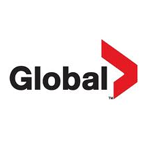 Canadian app rates ‘dirty’ ingredients in cosmetics and personal care products October 25, 2013
Canadian app rates ‘dirty’ ingredients in cosmetics and personal care products October 25, 2013TORONTO – If you’re concerned about the ingredients in everyday health and beauty products, navigating the beauty counter might feel like walking through a minefield. From five-syllable ingredients nearly impossible to decipher, to products labelled “natural” when they’re anything but, the average consumer likely has no idea what is in their personal care products.
 IDEABOOST NARROWS LIST OF POTENTIAL COHORT TEAMS TO 11 October 21, 2013
IDEABOOST NARROWS LIST OF POTENTIAL COHORT TEAMS TO 11 October 21, 2013ideaBOOST, the Canadian Film Centre’s (CFC) “business accelerator with a difference” has announced 11 shortlisted candidates for its third cohort of entertainment technology startups. The 11 teams will now pitch their visions in front of ideaBOOST founding partners Shaw Media, Google and Chorus Entertainment on November 4.
 Think Dirty App Could Clue Consumers In To Chemicals In Makeup October 21, 2013
Think Dirty App Could Clue Consumers In To Chemicals In Makeup October 21, 2013TORONTO (Reuters) – Consumers worried about what might be lurking within their cosmetics and skin care products can turn to new apps that scan barcodes to review the items for safety.
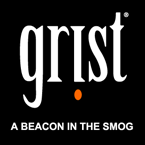 New app lets you quickly scan cosmetics to see if they’re potentially toxic October 17, 2013
New app lets you quickly scan cosmetics to see if they’re potentially toxic October 17, 2013Think Dirty miiiight be the best app ever (I see you, bus-finder app, but you ain’t helping me avoid cancer).
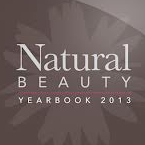 Think Dirty app roots out cosmetics toxins October 17, 2013
Think Dirty app roots out cosmetics toxins October 17, 2013A new app has been launched for the iPhone to enable consumers identify potential toxins in cosmetics and personal care products.
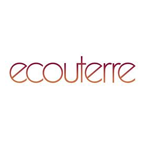 Demystify Cosmetics Labels With “Think Dirty” Smartphone App October 14, 2013
Demystify Cosmetics Labels With “Think Dirty” Smartphone App October 14, 2013Buying safe cosmetics has never been easier, with the help of your smartphone. The new Think Dirty app by the Campaign for Safe Cosmetics takes the guess work out of buying safer health and beauty aids, turning the power of educated purchasing into your hands.
 Think Dirty app invites women to investigate their beauty products October 11, 2013
Think Dirty app invites women to investigate their beauty products October 11, 2013During the month of October, Think Dirty, the Campaign for Safe Cosmetics, and the Breast Cancer Fund are uniting for “30 days of dirty.” Think Dirty is a “consumer movement led by a mobile app,” which invites beauty product purchasers and users to find out what’s in their cosmetics.
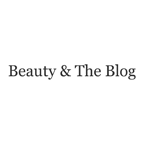 Beauty Lust Haves, October 2013 October 10, 2013
Beauty Lust Haves, October 2013 October 10, 2013Seeing that this is a list of my beauty faves, October being Breast Cancer Awareness month and in celebration of the newly launched Think Dirty app, I thought it was apropos to start off with this must have app.
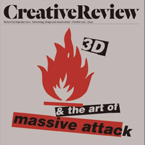 Seven New Ads To Watch October 3, 2013
Seven New Ads To Watch October 3, 2013Finally we finish this round-up on an app, Think Dirty, created by former advertising art director Lily Tse, who is based in Toronto.
 Think Dirty App Scans Your Personal Care Products Looking for Toxins Teaming with Breast Cancer Fund at launch October 1, 2013
Think Dirty App Scans Your Personal Care Products Looking for Toxins Teaming with Breast Cancer Fund at launch October 1, 2013You may know what you’re putting in your body, but do you know what you’re putting on it? A new app called Think Dirty is here to help.
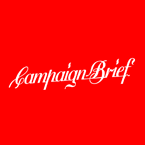 A new iPhone app created by former Toronto art director Tse wants you to ‘Think Dirty’ October 1, 2013
A new iPhone app created by former Toronto art director Tse wants you to ‘Think Dirty’ October 1, 2013To promote their official launch, Think Dirty, a new app that makes personal care shopping much cleaner, has launched 30 Days of Dirty, an inaugural campaign to inform consumers of the potentially toxic ingredients in cosmetics and to raise funds for Breast Cancer Fund.
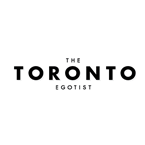 Think Dirty.30 days of dirty for the Breast Cancer Fund October 1, 2013
Think Dirty.30 days of dirty for the Breast Cancer Fund October 1, 2013A new iPhone app wants you to “Think Dirty®” and join in on “30 Days of Dirty”
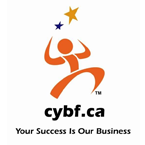 Spin Master Ltd. and the Canadian Youth Business Foundation Announce Recipients of the Spin Master Innovation Fund September 18, 2013
Spin Master Ltd. and the Canadian Youth Business Foundation Announce Recipients of the Spin Master Innovation Fund September 18, 2013Toronto,Ontario – Spin Master Ltd. and the Canadian Youth Business Foundation Announce Recipients of the Spin Master Innovation Fund.
 Spin Master Ltd. and the Canadian Youth Business Foundation Announce Recipients of the Spin Master Innovation Fund September 18, 2013
Spin Master Ltd. and the Canadian Youth Business Foundation Announce Recipients of the Spin Master Innovation Fund September 18, 2013TORONTO, ONTARIO – (Marketwired – Sep 18, 2013) – Today the Spin Master Innovation Fund announced the 2013 recipients of the Spin Master Innovation Program. In partnership with Spin Master Ltd. and co-financing partner the Business Development Bank of Canada (BDC), the Canadian Youth Business Foundation (CYBF) is pleased to introduce the next group of highly innovative entrepreneurs to the rest of the country.
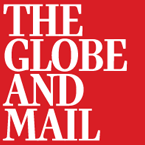 Six startups win $50,000 Spin Master prize for innovation September 18, 2013
Six startups win $50,000 Spin Master prize for innovation September 18, 2013As any startup knows, gaining momentum in the early stages can be extremely difficult. But for the six recipients of this year’s Spin Master Innovation Fund, the task just became a little easier.
 How fashion apps are looking forward on iPhone, iPad and Android September 13, 2013
How fashion apps are looking forward on iPhone, iPad and Android September 13, 2013There are also some apps to help ethical shopping. Think Dirty (iOS) lets you scan cosmetics products barcodes to find out about the “potentially toxic ingredients” that lurk within them. More than 10k products are in its database.
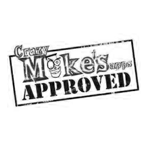 Think Dirty – Shop Smart App, Beauty and Brains! August 30, 2013
Think Dirty – Shop Smart App, Beauty and Brains! August 30, 2013With an app name like “Think Dirty,” you might not know what to think. However, the Think Dirty app isn’t as dirty as you might be thinkingor is it? As a matter of fact, the purpose of this free Healthcare & Fitness app is to get you to think clean. The Think Dirty iPhone app is all about providing unbiased product comparison information for personal care products. These products, for men and women, range from face wash and cosmetics to shampoos and more. Think Dirty’s vision is to turn iPhone users into better informed consumers, enabling us all to “Think Dirty – Shop Clean.”
 Meet Our FITC Toronto Contest Winners! #FITCTO #VVFITC April 23, 2013
Meet Our FITC Toronto Contest Winners! #FITCTO #VVFITC April 23, 2013With an app name like “Think Dirty,” you might not know what to think. However, the Think Dirty app isn’t as dirty as you might be thinkingor is it? As a matter of fact, the purpose of this free Healthcare & Fitness app is to get you to think clean. The Think Dirty iPhone app is all about providing unbiased product comparison information for personal care products. These products, for men and women, range from face wash and cosmetics to shampoos and more. Think Dirty’s vision is to turn iPhone users into better informed consumers, enabling us all to “Think Dirty – Shop Clean.”
 FAST COMPANY Announces Winners of 2020 World Changing Ideas Awards April 28, 2020
FAST COMPANY Announces Winners of 2020 World Changing Ideas Awards April 28, 2020The winners of Fast Company’s 2020 World Changing Ideas Awards were announced today, honoring the business, policies, projects, and concepts that are actively engaged and deeply committed to flattening the curve when it comes to the climate crisis, social injustice, or economic inequality.
 Did you know about Sophia? April 17, 2017
Did you know about Sophia? April 17, 2017Many cosmetic and personal-care products contain ingredients that can have negative environmental or health impacts, she says…
 An App that Cuts the Crap March 3, 2017
An App that Cuts the Crap March 3, 2017Just what is in our personal care products, and more importantly, how safe are they?
 Bathroom Confidential March 1, 2017
Bathroom Confidential March 1, 2017Just what is in our personal care products, and more importantly, how safe are they?
 The Changemakers January 4, 2017
The Changemakers January 4, 2017The world is a mess right now. An outsider’s look into the current state of affairs would show a global community in shambles, suffering from a laundry list of maladies in need of a serious remedy…
 How Lily Tse’s Think Dirty app helps shoppers pick better beauty products January 4, 2017
How Lily Tse’s Think Dirty app helps shoppers pick better beauty products January 4, 2017Toronto-based Lily Tse was 12 years into a marketing career when her itch to solve a problem-the lack of available information about the safety of beauty products-became stronger than her desire for stability. The Think Dirty app launched for iOS in 2013,…
 The Skin You Are In. O Magazine, September Issue 2016 September 5, 2016
The Skin You Are In. O Magazine, September Issue 2016 September 5, 2016The Future is Here. Apps give us the technology to monitor and take better care of our bodies, including our largest organ, the skin…
 Conosciamo insieme alcune delle applicazioni beauty più recenti March 8, 2015
Conosciamo insieme alcune delle applicazioni beauty più recenti March 8, 2015With so much technology and information, today, we should always be well-tuned everything. Here are some of the latest applications beauty and useful for the newspaper…
 Why I Stopped Using DevaCurl January 31, 2020
Why I Stopped Using DevaCurl January 31, 2020I am suffering from severe hair and scalp issues. I used to recommend Devacurl, but not anymore.
 Hidden dangers: ‘Clean products’ praised as personal care alternatives November 9, 2019
Hidden dangers: ‘Clean products’ praised as personal care alternatives November 9, 2019The four key things experts say families should look for when shopping
 Green Tech: Apps That Are Good for The Planet August 13, 2019
Green Tech: Apps That Are Good for The Planet August 13, 2019It seems like we can’t go one week without another headline about the damage we’ve done to the planet, leading some to feel frustrated and like there’s nothing they can do about it. We’re all just looking to do our part in protecting the environment – and luckily, there’s an app for that.
 Abby’s Apps: Get clean with ‘Think Dirty’ June 10, 2019
Abby’s Apps: Get clean with ‘Think Dirty’ June 10, 2019In the first installment of Abby’s Apps, Abby takes a look at an app that could help users shift to a clean and healthy lifestyle. It’s called “Think Dirty” but really, you’ll want to use it for getting clean.
 Tech on Tuesday: Skin Care Apps April 2, 2019
Tech on Tuesday: Skin Care Apps April 2, 2019Adults of all ages still struggle with breakouts, blackheads and other skin issues. In this week’s Tech on Tuesday, we check out some skin care apps to help you put your best face forward.
 Think Dirty on Dragon’s Den February 13, 2019
Think Dirty on Dragon’s Den February 13, 2019An entrepreneur seeks investment for her app that reveals the toxic ingredients found in beauty products.
 The best clean beauty products to try right now February 6, 2019
The best clean beauty products to try right now February 6, 2019Clean beauty is not just a trend, it’s a movement. TODAY style contributor Bobbie Thomas stops by to talk to Kathie Lee and Hoda about why it’s all the buzz. Plus, Bobbie shares some of her favorite products.
 THE DIRTY TRUTH ABOUT SKINCARE … Products to AVOID! December 18, 2018
THE DIRTY TRUTH ABOUT SKINCARE … Products to AVOID! December 18, 2018“Moving in to the New Year I’ve been taking a closer look at what I’m putting on my skin to improve it.”
“Moving in to the New Year I’ve been taking a closer look at what I’m putting on my skin to improve it.”
 Lead in lipstick June 15, 2018
Lead in lipstick June 15, 2018“You have to disclose if you’re buying a house there could potentially be lead in there. So why is it OK that we can educate people that there’s no lead on the walls, but then we can have it in our lipstick which is on our face?”
 A cleaner clean: Ditching household chemicals March 1, 2018
A cleaner clean: Ditching household chemicals March 1, 2018A growing amount of research suggests chemicals in everyday products may put us at risk for health problems. A mom in Pensacola is trying to protect her family, by “switching and ditching” products around her house.
 Everything you need to know about the Clean Beauty movement January 16, 2018
Everything you need to know about the Clean Beauty movement January 16, 2018Everybody’s talking about the Clean Beauty movement, but TODAY style expert Bobbie Thomas warns consumers to beware of buzzwords like “natural” because they’re not regulated. She also explains what the symbols on beauty product labels mean.
 Understanding Audiences November 17, 2017
Understanding Audiences November 17, 2017Founder and CEO of Think Dirty Lily Tse explains how she was successful at getting the word out about her company and the importance of being authentic when telling your story.
 The Prevail Project: Lily Tse April 1, 2017
The Prevail Project: Lily Tse April 1, 2017Advocating for people and the planet through better beauty products: my passion is promoting health and happiness through education.
 Disruptor 1: Think Dirty – BNN News March 3, 2016
Disruptor 1: Think Dirty – BNN News March 3, 2016Compiled by BNN staff 1:41 PM, E.T. | March 3, 2016 The Think Dirty app provides users with a way to learn about the potentially toxic ingredients in cosmetics and personal care products. Customers can scan the product barcode and Think Dirty…
 App Central for Nov. 23: Think Dirty, YouTube, IKEA Catalogue November 25, 2013
App Central for Nov. 23: Think Dirty, YouTube, IKEA Catalogue November 25, 2013This week’s featured apps are Think Dirty, YouTube and IKEA Catalogue.
 New app reveals ingredients in beauty products November 11, 2013
New app reveals ingredients in beauty products November 11, 2013CityNews reporter Saphia Khambalia with the app that lets you know the toxic chemicals you may be applying every day.
 In depth: What’s in your make-up? October 29, 2013
In depth: What’s in your make-up? October 29, 2013More and more women are asking questions about the safety of the ingredients used in their make-up products.
 Picking a Brain Doctor’s Brain on Kids Playing Sports, What Supplements I Should Take, and Bipolar Disorder October 8, 2024
Picking a Brain Doctor’s Brain on Kids Playing Sports, What Supplements I Should Take, and Bipolar Disorder October 8, 2024Kristin Cavallari sat down with Dr. Amen to discuss everything brain-related: how looking at the brain changed the meaning of mental illness for him, how drugs and alcohol impact your brain health, tricks to calm your nervous system down, brain injuries that we may not even be aware of, every day harmful things were doing, plus simple things we can do to help the health of our brain, why flossing is so important, why thoughts can be too positive, what to be doing with our boys who play football, and why it’s so important to get anger out.
 How Your Brain Is Hurting or Helping Your Relationships, Memory & Life w/Dr. Daniel Amen (PART 2) EP 1121 June 9, 2021
How Your Brain Is Hurting or Helping Your Relationships, Memory & Life w/Dr. Daniel Amen (PART 2) EP 1121 June 9, 2021If it’s good for your heart, it’s good for your brain. In this episode Lewis and Dr. Amen discuss the biggest challenges Dr. Amen thinks the world is facing around brain health, how to optimize brain and heart health, how our brain health can affect the quality of our relationships, how constant overwhelm of dopamine is affecting our brain function, why working on improving our memory is necessary and practical ways to start working on it, and so much more!
 Electric Runway Episode 77: Think Dirty, Shop Clean May 18, 2018
Electric Runway Episode 77: Think Dirty, Shop Clean May 18, 2018What exactly is inside the beauty and cosmetics products that many of us use on our skin every day? It’s a simple question with a not-so-simple answer…
 AWEAR World S01 Episode 50: Think Dirty + The Search for Clean Beauty February 21, 2017
AWEAR World S01 Episode 50: Think Dirty + The Search for Clean Beauty February 21, 2017Lily shares some of the dirty secrets behind the beauty industry, and talks about how she thinks “beauty” is the next industry in line to truly push forward in an organic, sustainable direction.
 Think Dirty, An App To Help Understand The Safety of Cosmetics January 24, 2016
Think Dirty, An App To Help Understand The Safety of Cosmetics January 24, 2016In this podcast, we explore how Lily has set up Think Dirty, how she uses the power of the crowds to help as well as exploring the ever important business model.
The phrase “clean cosmetics” has been appearing across the beauty market in an attempt to sway consumer trust. Yet, many brands aligning themselves with the “clean beauty” movement continue to grapple with unclear definitions and shifting standards of what “clean” truly means.
 Download these 8 self-care apps to nourish your mind, body, and soul March 13, 2025
Download these 8 self-care apps to nourish your mind, body, and soul March 13, 2025Self-care apps are designed to make achieving your wellness goals and staying on top of your self-care practices simple. Here are eight to download, stat.
 5 small changes to reduce your electronic waste May 13, 2024
5 small changes to reduce your electronic waste May 13, 2024Tech Expert Lisa Chang shares tips that you can implement at home to make a positive impact on the growing electronic waste issue.
 Checking Ingredient Lists Is Easy, Thanks to These 11 Websites January 16, 2024
Checking Ingredient Lists Is Easy, Thanks to These 11 Websites January 16, 2024Beauty consumers today are way savvier than they used to be and know that certain ingredients aren’t the best for their skin. Because of that, they make a conscious effort to learn more about the products they’re putting on their skin, which is a great first step to curating a safe skincare routine.
 Chemicals to avoid during pregnancy and conception: A naturopathic doctor’s guide September 12, 2023
Chemicals to avoid during pregnancy and conception: A naturopathic doctor’s guide September 12, 2023Navigating the preconception and pregnancy stages can be an exciting journey, yet it may also be tinged with the natural worries about how best to care for your health and the well-being of your future baby.
 Think Differently About Beauty July 1, 2023
Think Differently About Beauty July 1, 2023Take a look at our latest feature for App Store Canada #VoicesOfChangeCanada. Featuring our founder, Lily Tse. She delves into the connection between women’s self-image and their beauty product shopping habits.
 There’s An App For That: Tech Tools for the Planet June 8, 2023
There’s An App For That: Tech Tools for the Planet June 8, 2023It has never been easier to live consciously than it is today: bulk food stores in our neighbourhoods, online bazaars full of eco-friendly products, not to mention the amount of reusable or recyclable items available to us. But there is a whole heap of companies out there working hard to make sustainability even more convenient and accessible for everyone, especially through the modern world of apps.
 Whitespace x PFAs April 27, 2023
Whitespace x PFAs April 27, 2023Bubbly water drinks like La Croix and Bubly were favourites in my household until we learned about the insane levels of PFAs that are included. What are PFAs?
 Top Apps to Help You Live More Sustainably March 16, 2023
Top Apps to Help You Live More Sustainably March 16, 2023From finding nearby water bottle refill stations to calculating your carbon footprint to connecting with surplus food headed for the landfill, these apps help you live more sustainably.
 The 12 Best Fragrance-Free Shampoos That Won’t Irritate Your Scalp February 28, 2023
The 12 Best Fragrance-Free Shampoos That Won’t Irritate Your Scalp February 28, 2023Anyone with sensitive skin knows how valuable it is to be aware of what goes into your skincare products. One of the most common ways to avoid flare-ups is by choosing formulas without fragrance. The same approach should be applied to your hair care products, especially since scalp health should never be neglected and is essential to proper hair growth.
 Forever Chemicals: Is Make-Up Doing More Harm Than Good? February 28, 2023
Forever Chemicals: Is Make-Up Doing More Harm Than Good? February 28, 2023For those of us who choose to wear makeup, most often it’s to enhance the appearance of our skin; whether it be for that effortless glow or simply to convey the impression that we get a full eight hours of sleep. But with the recent news that major cosmetic brands are still selling makeup with ‘forever chemicals’ in the UK, are we actually doing ourselves more harm than good?
 A Girl’s Beginner’s Guide To Endocrine Disruptors February 27, 2023
A Girl’s Beginner’s Guide To Endocrine Disruptors February 27, 2023Whether from the food you eat, the air you breathe, or the makeup you wear every day, you have been —and continue to be — exposed to endocrine disruptors.
 Many Personal Care Products Contain Harmful Chemicals February 15, 2023
Many Personal Care Products Contain Harmful Chemicals February 15, 2023Every day, we use soaps, lotions, deodorants, hair products and cosmetics on various parts of our bodies. But in recent years, an increasing number of reports have raised concerns about many of them.
 The Think Dirty Shop Offers an Exclusive Valentine’s Day Beauty Box February 13, 2023
The Think Dirty Shop Offers an Exclusive Valentine’s Day Beauty Box February 13, 2023Valentine’s Day is all about finding the perfect gift for a special someone, and that can be challenging at times. But don’t fret, the best gifts are those that are meaningful and come from the heart. Think Dirty knows a thing or two about good gifts, and the shop offers an exclusive Valentine’s Day beauty box that will make the perfect gift for anyone.
 Hair care alternatives for women worried about cancer risks tied to straightening products February 1, 2023
Hair care alternatives for women worried about cancer risks tied to straightening products February 1, 2023The National Institutes of Health released a study showing women who frequently use chemical hair-straightening products were at higher risk for uterine cancer.
 Agent Nateur: Fueling Organic Growth In A Pay-To-Play Era October 16, 2022
Agent Nateur: Fueling Organic Growth In A Pay-To-Play Era October 16, 2022The deodorant category doesn’t exactly have a chic history. From bulky plastic containers to highly alcohol- and aluminum-filled formulas, antiperspirants weren’t exactly the type of product one would display in a “shelfie.”
 The 7 best drugstore shampoos October 5, 2022
The 7 best drugstore shampoos October 5, 2022Dermatologists and hair experts recommended these drugstore shampoos that won’t break the bank
 Want products with clean ingredients? There’s an app for that September 7, 2022
Want products with clean ingredients? There’s an app for that September 7, 2022In theory, everyone wants to use “better for you” products, but whether the average consumer is willing to put the time and energy into finding those products can be the deciding factor. Think Dirty, Sephora, and Target are making it easy for consumers to find products with clean ingredients
 13 Sustainability Apps For Pro-Planet Scrolling August 31, 2022
13 Sustainability Apps For Pro-Planet Scrolling August 31, 2022Sustainable living apps cover all kinds of e-ground, from helping you find sustainable brands to minimizing food waste.
 The Six Best Beauty Apps We Tried This Month July 29, 2022
The Six Best Beauty Apps We Tried This Month July 29, 2022Apps that offer delivery on demand have made it easier than ever to access our essentials. (Yes. That includes a midnight pizza order via Uber.). And now a new one is adding beauty to the list.
 The best food and cosmetic apps for a toxic-free lifestyle July 8, 2022
The best food and cosmetic apps for a toxic-free lifestyle July 8, 2022Living a healthy and toxic-free lifestyle can be challenging in a world filled with GMOs and chemical ingredients, especially when brands are not forthcoming with what’s actually in their products.
 Scorned by a viral beauty product, ex-DevaCurl users band together online June 7, 2022
Scorned by a viral beauty product, ex-DevaCurl users band together online June 7, 2022In a Facebook group born around allegations of hair damage caused by DevaCurl, thousands of former users are trying to help each other recover their curls.
 Want to Check the Ingredients in Your Beauty Products? April 30, 2022
Want to Check the Ingredients in Your Beauty Products? April 30, 2022When it comes to choosing beauty products, what’s most important to you? How does it look, what it does or, what its ingredients are? Sometimes, beauty industry jargon can be confusing, masking a product’s true ingredients and effectiveness.
 Tech entrepreneur Lily Tse wants you to Think Dirty (but shop clean) March 29, 2022
Tech entrepreneur Lily Tse wants you to Think Dirty (but shop clean) March 29, 2022“The most beautiful makeup for a woman is passion. But cosmetics are easier to buy,” says Lily Tse (BA 2001 UTSC), quoting fashion designer Yves St. Laurent. Tse is an entrepreneur and the CEO of Think Dirty, a mobile app that helps consumers understand the ingredients in their personal care products.
 The 8 Best Apps to Increase Sustainability in All Areas of Life March 3, 2022
The 8 Best Apps to Increase Sustainability in All Areas of Life March 3, 2022There are quite a few apps out there that help the environment by reducing your carbon footprint through planting trees, using alternative modes of transportation, and more. But did you know there’s more you can do to help the environment than biking to work and planting trees? Living more sustainably doesn’t have to be an all-or-nothing feat.
 11 Best Skin Care Ingredient Checkers January 21, 2022
11 Best Skin Care Ingredient Checkers January 21, 2022When it comes to choosing the products you use on your skin every day, how much do you pay attention to the ingredients inside those products? The industry jargon and product claims can make finding the right products a confusing and challenging task.
 How to purge risky chemicals from your beauty products December 30, 2021
How to purge risky chemicals from your beauty products December 30, 2021Eliminating endocrine disruptors is harder than you might think.
 4 Apps That Will Transform Your Skincare Routine In 2022 December 21, 2021
4 Apps That Will Transform Your Skincare Routine In 2022 December 21, 2021If you want to transform your skin, then try out these four apps to help your skin glow as well as keep you informed about skincare ingredients.
 Treehugger Picks Think Dirty: 2 Apps Help You Identify Toxic Ingredients in Skin Care and Personal Care Products November 10, 2021
Treehugger Picks Think Dirty: 2 Apps Help You Identify Toxic Ingredients in Skin Care and Personal Care Products November 10, 2021Did you know that more than half of the cosmetics sold in the United States and Canada contain toxic chemicals linked to serious health effects?
 6 Apps That’ll Help You Find Cleaner Beauty Products June 29, 2021
6 Apps That’ll Help You Find Cleaner Beauty Products June 29, 2021G.I. Joe said it best — knowing is half the battle. You owe it to yourself, your health, your body, your skin, and your loved ones to make informed choices by knowing the ingredients in the beauty products and cosmetics you use.
 4 Technologies That Will Improve Your Life April 26, 2021
4 Technologies That Will Improve Your Life April 26, 2021Technology is the double-edged sword of the modern world. On one hand it brings us great convenience. And on the other hand technologies can greatly decrease our quality of life. One way we can deal with the negative effects of technology is to use technology itself – but we need to be discerning about what we use, and how.
 Featured on Earth Day 2021 April 23, 2021
Featured on Earth Day 2021 April 23, 2021The responsibility to protect our shared planet intersects every aspect of our lives. These apps make it easier to minimize waste, nurture a meaningful connection with nature, and preserve precious resources.
 Think Dirty App as App of the Day March 18, 2021
Think Dirty App as App of the Day March 18, 2021Want to know if the beauty, personal care, and cleaning products in your home have potentially toxic ingredients? Think Dirty has evaluated over 1.7 million products to help you identify those that might be harmful.
 The gadgets and tech that got us through 2020 November 25, 2020
The gadgets and tech that got us through 2020 November 25, 2020Smartphones, laptops and gaming consoles remain at the top of holiday wish lists, but this year we at CNN Business are reflecting on the tech, services and apps that truly made a big impact on our everyday lives…
 11 Apps That Will Help You on Your Sustainability Journey November 16, 2020
11 Apps That Will Help You on Your Sustainability Journey November 16, 2020Who says phones are just for scrolling yourself down a rabbit hole on TikTok and Instagram? As you continue your sustainability journey, you can actually use apps to your advantage. Some sustainability apps will help you calculate your carbon footprint…
 Ingredient checkers: Websites to Check Your Beauty Products November 1, 2020
Ingredient checkers: Websites to Check Your Beauty Products November 1, 2020When it comes to choosing beauty products, what’s most important to you? How it looks, what it does or, what its ingredients are? Sometimes beauty industry jargon can be confusing…
 4 ridiculously easy ways you can be more eco-friendly August 11, 2020
4 ridiculously easy ways you can be more eco-friendly August 11, 2020While a self-care routine is important — occasional self-indulgence is necessary to stay sane — beauty brands and cosmetics can be especially harmful to the environment. The Think Dirty app helps users…
 Beauty Labels 101: How to Skip the Toxins and Know Your Ingredients July 30, 2020
Beauty Labels 101: How to Skip the Toxins and Know Your Ingredients July 30, 2020As tempting as trendy packaging and clever buzzwords are, they don’t make a product safe.
 Apple App Store: Top 10 Apps For Earth Day April 22, 2020
Apple App Store: Top 10 Apps For Earth Day April 22, 2020You don’t have to go far to help care for Earth. These apps empower you to make a difference wherever you are.
 10 apps that help you be more sustainable in every area of life April 22, 2020
10 apps that help you be more sustainable in every area of life April 22, 2020These tech tools can help you buy eco-friendly clothes and products, and avoid wasting food.
 These 8 “Sustainable” Habits Aren’t as Green as You Might Think—Here’s How to Fix Them April 22, 2020
These 8 “Sustainable” Habits Aren’t as Green as You Might Think—Here’s How to Fix Them April 22, 2020Are your efforts to help the planet secretly hurting it? It might be time to rethink a few things.
 What to look for in your cleaning supplies April 22, 2020
What to look for in your cleaning supplies April 22, 2020The Coronavirus concerns have some people cleaning more than ever. The U.S. Poison Control Center calls have increased by 20-percent in the last three months as people have suffered from toxic exposure to cleaning supplies and disinfectants.
 Earth Day 2020: Top five must-have iOS apps to reduce your carbon footprint April 22, 2020
Earth Day 2020: Top five must-have iOS apps to reduce your carbon footprint April 22, 2020As the world is under lockdown to fight the spread of the coronavirus pandemic, we are seeing reports of wild birds, animals roaming around in the cities. Though, it gives us a really good refreshing break from the depressing news, but also make realize planet Earth can heal itself with or without humans.
 Happy Hormones: Step 3 – Cleanse (from toxic chemicals) January 30, 2020
Happy Hormones: Step 3 – Cleanse (from toxic chemicals) January 30, 2020Today I’m covering Step 3 of the Happy Hormone Code and that’s CLEANSE – minimizing your exposure to toxic chemicals and ensuring your detoxification systems are working.
 From ‘Fleek’ to ‘Beat’ – The Beauty Words that Defined the Decade December 30, 2019
From ‘Fleek’ to ‘Beat’ – The Beauty Words that Defined the Decade December 30, 2019As we continue to reflect on the past 10 years, we explore how the beauty dictionary got updated.
 The Clean Beauty Edit founder on how to achieve the skin of dreams December 25, 2019
The Clean Beauty Edit founder on how to achieve the skin of dreams December 25, 2019Do you long to glow and be forever youthful? Us too. However, it’s no easy feat finding beauty products that can deliver. Do they even exist?
 Tips to be fit: The price of looking good December 24, 2019
Tips to be fit: The price of looking good December 24, 2019Getting beautiful can cause problems. We most often think nothing of changing our hair color, getting a manicure or pedicure or putting on nail polish. These body enhancements can cause a number of health issues.
 European CEO reveals the top business leaders and companies of 2019 December 6, 2019
European CEO reveals the top business leaders and companies of 2019 December 6, 2019Every year the magazine shines a light on the best-performing companies and industry leaders, specifically honouring those that have managed to excel in terms of both strategy and sustainability.
 Are ‘What’s in your Beauty Product’ Apps a Blessing or a Curse? November 22, 2019
Are ‘What’s in your Beauty Product’ Apps a Blessing or a Curse? November 22, 2019Apps like ‘Think Dirty’ reveal what you’re really using on your skin and hair – including allergens and carcinogens – We explore how beneficial they are.
 The global clean beauty industry is growing faster than ever. But is it actually clean? November 18, 2019
The global clean beauty industry is growing faster than ever. But is it actually clean? November 18, 2019From decades of beauty trends that sell you ‘this’ new magic ingredient, it seems as though consumers are trying to be more conscious—and beauty and skincare brands see that. So what is clean beauty? And what makes your bathroom cabinet dirty?
 Ingredient apps and the importance of transparency November 13, 2019
Ingredient apps and the importance of transparency November 13, 2019Packaging is, more than ever, a vital part of the marketing mix. A new breed of shoppers is avidly checking labels for ‘good’ and ‘bad’ ingredients using a variety of apps and websites, plus knowledge gleaned from the plethora of on and offline media and beauty bloggers.
 6 Of The Best Beauty Apps To Download Right Now November 6, 2019
6 Of The Best Beauty Apps To Download Right Now November 6, 2019Considering how much time we not only spend on our phones and how rely on them for just about everything, it shouldn’t come as a surprise that beauty brands have taken notice by stepping the app game up.
 Want to save the planet? There’s an app for that November 2, 2019
Want to save the planet? There’s an app for that November 2, 2019We’re all just trying to do our part, and these apps can make it a little easier.
 Need information on safe cosmetics? Here are some resources August 4, 2019
Need information on safe cosmetics? Here are some resources August 4, 2019When Ovie Marshall, an esthetician at The Spa at Aestique in Hempfield, decided to use natural beauty and skin care products, she says she found valuable information in Stacy Malkan’s 2007 book, “Not Just a Pretty Face: The Ugly Side of the Beauty Industry.”
 Dangerous Makeup: What You Don’t Know Can Hurt You August 4, 2019
Dangerous Makeup: What You Don’t Know Can Hurt You August 4, 2019Dangerous makeup. These are two words no one wants to hear in the same sentence. Yet there are harmful ingredients in the cosmetics we use to help enhance our appearance.
 Would You Put Your Skin’s Health In The Hands Of An App? July 28, 2019
Would You Put Your Skin’s Health In The Hands Of An App? July 28, 2019We live in a digital age; dependent on our iPhones for everything from telling the time to controlling our heating and even finding a life partner. So it was only a matter of time until technology took over looking after our skin.
 What’s in those household products? July 22, 2019
What’s in those household products? July 22, 2019You can read all the nutrition labels in the world and make excellent choices based on that information but what good will it do if the air you breathe around the apartment or the lotions you dutifully apply to your skin are more toxic than your teenage son’s gym bag?
 Natural beauty now. Tune in. Get gorgeous. July 1, 2019
Natural beauty now. Tune in. Get gorgeous. July 1, 2019Beauty is all around us. Channeling or harnessing it to be our best selves can be incredibly fun, and it can bring thought-provoking challenges as well. Here’s how to truly cultivate beauty from the outside, from choosing natural skincare strategies to making lifestyle pivots.
 5 Clean Lifestyle Tips to Growing a Healthy Family June 29, 2019
5 Clean Lifestyle Tips to Growing a Healthy Family June 29, 2019As parents, we all want the best for children. Some areas seem more important than others to go the extra mile. We have 5 Quick Tips for to make healthier consumer choices.
 Decoding the science behind skincare ingredients June 21, 2019
Decoding the science behind skincare ingredients June 21, 2019Don’t know your AHAs from your HA, your retinol from your retin-A and what exactly vitamin C is doing to your skin? Here are some answers.
 Like the Digital Revolution, Brands Need to Claim Responsibility for Decisions or Be Left Behind June 5, 2019
Like the Digital Revolution, Brands Need to Claim Responsibility for Decisions or Be Left Behind June 5, 2019It’s a necessity, otherwise they could go the way of Kraft Heinz.
 The best eco-friendly beauty brands May 15, 2019
The best eco-friendly beauty brands May 15, 2019With it being Earth Month, there’s no better time to reconsider your beauty regime. If you’re willing to spend extra dollars on organic produce, why lather your lashes with chemical-laden mascaras?
 ELEVATE ANNOUNCES CANADA’S 50 MOST INNOVATIVE WORKPLACES May 7, 2019
ELEVATE ANNOUNCES CANADA’S 50 MOST INNOVATIVE WORKPLACES May 7, 2019Elevate has announced the 50 most innovative workplaces that will be officially recognized at The Elevated Awards. The Elevated Awards look to recognize the companies that make innovation a valued part of the way people think, work, and interact every day.
 Glam-Tech: 5 Best Beauty Apps You Should Download April 30, 2019
Glam-Tech: 5 Best Beauty Apps You Should Download April 30, 2019This is an excellent app, which allows you to scan the barcode or manually search for any beauty, skincare or haircare product.
Read Article
 ARE YOUR PRODUCTS REALLY CLEAN? April 24, 2019
ARE YOUR PRODUCTS REALLY CLEAN? April 24, 2019Companies are tricking their consumers into trusting their ingredients by labeling their products “natural” and “clean.” Are they telling the truth or is it a marketing scam?
 What Does ‘Clean Beauty’ Actually Mean? April 23, 2019
What Does ‘Clean Beauty’ Actually Mean? April 23, 2019How to decode labels, understand ingredient lists and find products that are truly healthier for your body and the planet.
 10 CONTROVERSIAL BEAUTY INGREDIENTS TO KNOW ABOUT April 19, 2019
10 CONTROVERSIAL BEAUTY INGREDIENTS TO KNOW ABOUT April 19, 2019And the safe alternatives we’re loving.
 Best apps to help prepare for spring cleaning 2019 March 19, 2019
Best apps to help prepare for spring cleaning 2019 March 19, 2019You don’t need Marie Kondo to declutter your house. Just get some of these apps.
 Clean Mama shares how to tackle spring cleaning March 8, 2019
Clean Mama shares how to tackle spring cleaning March 8, 2019The cleaning influencer offers tips along with her new book release.
 Eight Ventures Selected by the SheEO Network for Funding March 5, 2019
Eight Ventures Selected by the SheEO Network for Funding March 5, 2019The newest eight ventures selected by the SheEO network for funding this year have been announced.
 2018/2019 SheEO Ventures March 4, 2019
2018/2019 SheEO Ventures March 4, 2019Together, the SheEO network and SheEO Ventures are taking on the world’s to-do list, which means their business models and outcomes help achieve the UN’s Sustainable Development Goals (SDGs).
 Alum wants you to detoxify your beauty cabinet, takes her app to CBC’s Dragons’ Den February 22, 2019
Alum wants you to detoxify your beauty cabinet, takes her app to CBC’s Dragons’ Den February 22, 2019Lily Tse wants you to think dirty and buy clean. The U of T Scarborough alum started thinking about the chemicals in personal care and beauty products after her mother’s breast cancer diagnosis. She did some digging…
 Why (and How) I’m Making the Switch to Non-Toxic Beauty Products January 23, 2019
Why (and How) I’m Making the Switch to Non-Toxic Beauty Products January 23, 2019Non-toxic or “clean” products—everything from household cleaners to baby supplies to beauty products—have been on the rise in recent years…I didn’t see what all the fuss (and a few extra bucks) was about. That is, until I found myself struggling to get pregnant.
 Digitaal opruimen als Marie Kondo January 17, 2019
Digitaal opruimen als Marie Kondo January 17, 2019Kan jouw huis wel een opruimbeurt gebruiken, maar heb je geen idee waar je moet beginnen? Dan kun je natuurlijk naar de Japanse opruimgoeroe Marie Kondo kijken op Netflix. Maar we helpen graag een handje door je vijf apps te geven waarmee…
Read Article
 The Top Apps For Success In 2019 January 10, 2019
The Top Apps For Success In 2019 January 10, 2019There are so many apps out on the market it can be really hard to choose which are the best for you. Here’s a list of my favorite apps in different categories…If you’re looking for the best apps to help you make 2019 your most successful year yet, here they are!
 Find out what’s in your cosmetic products January 9, 2019
Find out what’s in your cosmetic products January 9, 2019Mobile applications make it easier to track ingredients in skincare and makeup products.
 Apps to Help You Keep Your New Year’s Resolutions December 28, 2018
Apps to Help You Keep Your New Year’s Resolutions December 28, 2018Whether you want to get fit or find a new job, these apps will help you stay on track and make sure you don’t abandon your New Year’s resolutions by mid-January.
 How well do you really know the products you use? December 17, 2018
How well do you really know the products you use? December 17, 2018From skin care to household items, hidden toxins in the products you use every day may be impacting your health.
 Exposure to chemicals in personal care products linked to earlier puberty in girls December 7, 2018
Exposure to chemicals in personal care products linked to earlier puberty in girls December 7, 2018Girls who are exposed before birth to chemicals commonly found in cosmetics, soaps, shampoos and other personal care products may begin puberty at an earlier age, according to a study published this week in the journal Human Reproduction.
 EWG News Roundup (12/7): EWG Analyzes Korean Beauty Trends, Coal Consumption Plummets and More December 7, 2018
EWG News Roundup (12/7): EWG Analyzes Korean Beauty Trends, Coal Consumption Plummets and More December 7, 2018This week, EWG released an analysis that breaks down the rising trend of serum and essence cosmetics.
 Chemicals found in perfume, hand creams, body lotion pushes early puberty in girls December 5, 2018
Chemicals found in perfume, hand creams, body lotion pushes early puberty in girls December 5, 2018Girls exposed to chemicals commonly found in toothpaste, makeup, soap and other personal care products before birth may hit puberty earlier, according to a new longitudinal study led by researchers at the University of California, Berkeley, United States (U.S.).
 ETHICAL MAKEUP THAT’S ACTUALLY AFFORDABLE – GOOP DUPES November 28, 2018
ETHICAL MAKEUP THAT’S ACTUALLY AFFORDABLE – GOOP DUPES November 28, 2018I believe that toxin-free, sustainable, and ethical fashion should be accessible to all. And I think the same should go for the products we put on our skin.
 5 Chemical Products You Need to Get Out of the House November 15, 2018
5 Chemical Products You Need to Get Out of the House November 15, 2018In your heart of hearts, you know you should probably live with fewer chemicals. But why, exactly?
 Apps will reveal what’s really in your makeup November 14, 2018
Apps will reveal what’s really in your makeup November 14, 2018Think Dirty and other apps let shoppers scan for toxic ingredients in cosmetics such as the Drop Dead Red lipstick once touted by Kendall Jenner.
 17 Non-Toxic Beauty Products I Used During My Cancer Treatment October 23, 2018
17 Non-Toxic Beauty Products I Used During My Cancer Treatment October 23, 2018When battling cancer, it’s truly amazing what a swipe of bold red lipstick or a simple sheet mask can do for you physical and mental wellbeing…
 How to green your beauty routine: 6 popular product picks October 20, 2018
How to green your beauty routine: 6 popular product picks October 20, 2018Green beauty — products containing all-natural ingredients — is now a multi-billion dollar market.
 Apps Will Reveal What’s Really in Your Makeup October 19, 2018
Apps Will Reveal What’s Really in Your Makeup October 19, 2018Think Dirty and other apps let shoppers scan for toxic ingredients in cosmetics such as the Drop Dead Red lipstick once touted by Kendall Jenner.
 Kendall Jenner’s fave lipstick is (big surprise) bad for your health October 19, 2018
Kendall Jenner’s fave lipstick is (big surprise) bad for your health October 19, 2018Want to know if the beauty products you’re buying are bad for you? There’s an app for that.
 Torontonians who are shaking up the tech sector October 4, 2018
Torontonians who are shaking up the tech sector October 4, 2018Lily Tse founded Think Dirty, an app that educates consumers about ingredients in health and beauty products.
 This Makes No Scents: Fragrance is Toxic October 2, 2018
This Makes No Scents: Fragrance is Toxic October 2, 2018I’m a reformed scent-a-holic. For years, I believed the more fragrance, the better. Pile it on!…But then my body rebelled. And yours might be, too, you just don’t realize it yet.
 FIVE APPS I’M LOVING LATELY September 24, 2018
FIVE APPS I’M LOVING LATELY September 24, 2018“I always love seeing what other apps people are using and I’ve gotten a few really great recommendations over the past year, so I thought I’d share a few that I’m loving (and using) lately.”
 5 Apps That Tell You What’s In Beauty Products Because Knowledge Is Power September 21, 2018
5 Apps That Tell You What’s In Beauty Products Because Knowledge Is Power September 21, 2018“G.I. Joe said it best — knowing is half the battle. You owe it to yourself, your health, your body, your skin, and your loved ones to make informed choices by knowing the ingredients in the beauty products and cosmetics you use.”
 Your A-to-Z Guide to Skin Care Today August 9, 2018
Your A-to-Z Guide to Skin Care Today August 9, 2018THE CULT OF skin care seems to have reached a fever pitch, with women (and men) accumulating costly, pleasingly packaged products to arrange in their bathrooms at a new pace. Self-taught enthusiasts, known as the “skintelligentsia,” exchange…
 What Are The Safest Beauty Products To Use? This App Will Tell You August 7, 2018
What Are The Safest Beauty Products To Use? This App Will Tell You August 7, 2018While many people can relate to scrutinizing ingredient lists at the grocery store, we often ignore what beauty and skincare products be sinking into our pores. Even if said products, from sunscreen to moisturizers to…
 5 Apps To Make You More Environmentally Conscious July 30, 2018
5 Apps To Make You More Environmentally Conscious July 30, 2018In between checking your Insta feed or seeing what’s happening on Snapchat, why not download a couple of our suggested apps? Our recommendations are perfect anyone looking to up their eco-conscious game.
 WHY YOU NEED MY NEW FAVORITE APP: “THINK DIRTY” July 20, 2018
WHY YOU NEED MY NEW FAVORITE APP: “THINK DIRTY” July 20, 2018“First, let me start off by saying I am an app minimalist. I’m currently still in the Dark Ages with my iPhone 6S 16GB, so I barely have room for Gmail and text threads. I’m extremely judicious with app downloads, but my new discovery–the “Think Dirty” app–was a no-brainer!”
 Girl’s Guide to Going Cruelty-Free July 20, 2018
Girl’s Guide to Going Cruelty-Free July 20, 2018Walking into a drugstore and seeing endless aisles of makeup can be overwhelming. Now try to narrow those products down into ones that don’t test on animals…We owe it to our furry friends to shop cruelty-free! Here are some ways to get started:
 What Happened When I Tried Nontoxic Makeup For 90 Days July 11, 2018
What Happened When I Tried Nontoxic Makeup For 90 Days July 11, 2018I love makeup and make no apologies for it. I consider makeup a tool for boosting my mood or highlighting my favorite features, but I recently started to question my embrace of it. While listening to my local NPR station, I heard experts discussing a recent study about chemicals in cosmetics. I thought: could my form of self-expression be dangerous?
 【專欄作家:混血孖囡懶媽媽】一個適合天然有機控、成份控媽媽使用的APP July 11, 2018
【專欄作家:混血孖囡懶媽媽】一個適合天然有機控、成份控媽媽使用的APP July 11, 2018“奶媽我可能職業病的關係,在未懷珍珠(大孖)奶茶(細孖)時已經好注意平時用的護膚品、彩妝及日用品的成分是否溫和、天然、安全或者有機。要詳細了解每一種產品的成分並非一般媽媽可以做到,就算產品公司聲稱使用的製造成分天然溫和,都有機會只是宣傳手法…
 Chemical Attraction: How cosmetics can damage the planet May 16, 2018
Chemical Attraction: How cosmetics can damage the planet May 16, 2018The Think Dirty app: “A great example of a resource that allows people to decipher all of the confusing and unpronounceable chemical names so that they can assess the safety of their favorite cosmetic products.”
 Battling dull skin and bad breakouts? You might want to switch to green beauty May 15, 2018
Battling dull skin and bad breakouts? You might want to switch to green beauty May 15, 2018With equal parts science and nature, the world of green beauty makes a strong case for itself.
 How harmful are the personal products you use on a daily basis? Find out with new app April 25, 2018
How harmful are the personal products you use on a daily basis? Find out with new app April 25, 2018As a first-time mom, I am trying to use products on my daughter that don’t contain harmful ingredients, so I immediately downloaded the app to find out if I was succeeding.
 Your need-to-know guide on the difference between vegan, natural, organic, clean and fairtrade beauty March 27, 2018
Your need-to-know guide on the difference between vegan, natural, organic, clean and fairtrade beauty March 27, 2018Discover what’s really in your products…
 I Tested 5 Natural Beauty Foundations and Now I’m Hooked March 22, 2018
I Tested 5 Natural Beauty Foundations and Now I’m Hooked March 22, 2018I scrutinized ingredient lists and cross-checked with the Think Dirty app database to make sure the foundations I was testing were free of parabens, phthalates, sulfates and petrochemicals (the main substances that the clean beauty community is passionate about avoiding).
 The 15 Best Beauty Apps to Download Right Now March 9, 2018
The 15 Best Beauty Apps to Download Right Now March 9, 2018We put together a list of the best beauty apps on the market, from skin analysis to up-to-the date hair conditions based on weather. Check out the 15 beauty apps you’ll probably want to start downloading now.
 Looking for Endo-friendly Beauty Products? Here’s What You Need to Know! February 28, 2018
Looking for Endo-friendly Beauty Products? Here’s What You Need to Know! February 28, 2018Gupta recommends downloading an app called Think Dirty to help determine which products are the healthiest choices for your body and skin. “It’s a wonderful tool,” Gupta added. “You just scan the barcode of your toothpaste, deodorant, moisturizer or whatever beauty or hygiene product you’re inquiring about, and you can see how clean or dirty it is for your skin.”
 Are You Using Toxic Beauty Products? Check This App to Find Out February 13, 2018
Are You Using Toxic Beauty Products? Check This App to Find Out February 13, 2018“While we often think to clean up our homes and detox our cleaning supplies in preparation for the new season, the designer also recommends spring-cleaning your makeup collection. And there’s an app that makes it easy.”
 The Top 16 Apps That Will Guarantee You More Success In 2018 January 15, 2018
The Top 16 Apps That Will Guarantee You More Success In 2018 January 15, 2018Think dirty is one of my favorite apps that I have been using in 2017. It is quick and easy and it can completely change the health of you and your family as you know it!
 Your Chapstick Could Be Toxic to Your Health – Here’s Why January 4, 2018
Your Chapstick Could Be Toxic to Your Health – Here’s Why January 4, 2018Dry lips can be borderline unbearable, and sometimes it feels as if the things we use to fix that problem only make it worse. Why is this?
 How Ruby Rose Achieves a Unicorn Effect December 4, 2017
How Ruby Rose Achieves a Unicorn Effect December 4, 2017What changed my routine and really my life is the Think Dirty app. I’m obsessed. All these things I thought were good, or natural, were actually loaded with carcinogens.
 What Happened When I Tried Nontoxic Makeup For 90 Days December 3, 2017
What Happened When I Tried Nontoxic Makeup For 90 Days December 3, 2017I began by researching a safe cosmetic “starter kit,” focusing on the body, shower, skin care, and makeup products I use on a daily basis. The FDA has shockingly little authority over cosmetics (more on that later), and my research taught me that terms like organic, eco, natural, and nontoxic have no legal or regulatory meaning when it comes to cosmetics. Luckily, there are helpful online resources and apps like Think Dirty (available on iPhone) that help consumers understand what exactly goes into the products they use.
 How dirty are you? Think Dirty app rates everyday products’ potential danger November 7, 2017
How dirty are you? Think Dirty app rates everyday products’ potential danger November 7, 2017“I might need to clean up my act. At least when it comes to the products I use.”
 How to Make the Switch to a Clean, Nontoxic Beauty Regimen October 25, 2017
How to Make the Switch to a Clean, Nontoxic Beauty Regimen October 25, 2017Here’s what happened when one beauty writer went on a beauty detox in a quest to green her beauty routine.
 The Most Trusted Sources for Green Beauty Education October 3, 2017
The Most Trusted Sources for Green Beauty Education October 3, 2017With eco-friendly beauty buys becoming more of an industry standard, now is the perfect time to arm ourselves with the best resources that can help us make better choices one purchase at a time. But what exactly is green beauty and how can you get on board? Here, a few amazing platforms that make natural beauty education a reality.
 ThinkDirty’s Lily Tse: Founders must work on what really matters September 9, 2017
ThinkDirty’s Lily Tse: Founders must work on what really matters September 9, 2017Lily Tse left agency life to become an entrepreneur, and now she’s on a mission to help people purchase beauty products that are good for you and good for the environment. Read on to see her global idea for tech and innovation.
 These 28 Drugstore Finds Prove Nontoxic Makeup Doesn’t Have to Be Expensive August 24, 2017
These 28 Drugstore Finds Prove Nontoxic Makeup Doesn’t Have to Be Expensive August 24, 2017The truth is that the FDA can only take action once a dangerous product is on the market and it can prove it’s harmful to consumers. The good news? There are resources out there, like Think Dirty (available on iTunes), that help consumers understand what goes into the products we use.
 What they don’t tell you about being an entrepreneur April 24, 2017
What they don’t tell you about being an entrepreneur April 24, 2017Content that is meant to help and inspire entrepreneurs is actually altruistic, unrealistic and idealistic, ignoring the realities of starting a company… We suggest that you avoid the meaningless, rainbow-coloured, unicorns-and-rabbits advice plastered all over social media. Here’s some real advice and interesting ideas from entrepreneurs and experts who have failed, succeeded and then failed again.
 Scandal Proof Your Corporate Culture April 19, 2017
Scandal Proof Your Corporate Culture April 19, 2017In this presentation, Lily talks about the importance of purpose and inclusivity in building the right culture.
 A Conversation with Lily Tse April 12, 2017
A Conversation with Lily Tse April 12, 2017“I recently had a conversatin with Lily Tse, the founder of the Think Dirty app. With her family having a history of cancer, Lily decided to take matters into her own hands and become knowledgable about what exactly goes into our most tried and trusted beauty products. Find the full interview below.”
 The Unstoppable Rise of Clean Beauty and the Celebs Betting Their Careers on the Movement: An Insider’s Look March 3, 2017
The Unstoppable Rise of Clean Beauty and the Celebs Betting Their Careers on the Movement: An Insider’s Look March 3, 2017Emma Watson knows the power of a press tour. Being that she’s spent half of her life on the Harry Potter circuit…
 6 Aplikasi Beauty yang Perlu Kamu Download February 28, 2017
6 Aplikasi Beauty yang Perlu Kamu Download February 28, 2017Zaman sekarang, kayaknya nggak ada alasan untuk nggak tampil cantik. As we know, saat ini beauty product semakin beragam dan lebih mudah untuk didapatkan secara online. Selain itu, kalau kamu…
 This Canadian Beauty App Reveals the Most (& Least!) Natural Prods January 12, 2017
This Canadian Beauty App Reveals the Most (& Least!) Natural Prods January 12, 2017Toronto-based app Think Dirty is shaking up the cosmetic world and revolutionizing how we buy makeup
 Health Risks and 5 Other Secrets Barcodes Can Tell You September 2, 2016
Health Risks and 5 Other Secrets Barcodes Can Tell You September 2, 2016The humble barcode has been a regular part of grocery store shopping since 1974, with the first ever product being scanned on June 26th of that year. Since then, they have become almost invisible, with some package designs finding ingenious ways to hide…
 Health Risks and 5 Other Secrets Barcodes Can Tell You September 2, 2016
Health Risks and 5 Other Secrets Barcodes Can Tell You September 2, 2016Well, from where we stand, it doesn’t have a formal definition. It’s a movement that means different things for different people. At its core, it’s reexamining how our beauty products are affecting our health and eliminating the things that make cosmetics…
 Disruptors Pitch: Think Dirty August 6, 2016
Disruptors Pitch: Think Dirty August 6, 2016The Think Dirty app provides users with a way to learn about the potentially toxic ingredients in cosmetics and personal care products. Customers can scan the product barcode and Think Dirty will give them easy-to-understand info on the product…
 The Battle To Regulate Cosmetics August 6, 2016
The Battle To Regulate Cosmetics August 6, 2016What’s in your cosmetics and can it be harmful to your health? We’ll look at the new calls for — and resistance to — deeper regulation of the cosmetics industry…
 10 Canadian Women Who Are Taking the Tech World By Storm June 20, 2016
10 Canadian Women Who Are Taking the Tech World By Storm June 20, 2016The top 25 female-led startups to participate in the Fierce Founders Bootcamp were announced today. The founders will complete the first phase of programming at the Communitech Hub July 19- 21, 2016, and then return to the Hub from August 23-25, 2016….
 10 Canadian Women Who Are Taking the Tech World By Storm May 18, 2016
10 Canadian Women Who Are Taking the Tech World By Storm May 18, 2016It’s no secret that men dominated the tech world at one point in time. But it’s no longer just a man’s world. The times have changed and women are killing it on the technical turf, especially here on Canadian soil. These are the women who have…
 THINK DIRTY’S LILY TSE SAYS PURPOSE, INCLUSIVITY ARE KEY TO BUILDING THE RIGHT COMPANY CULTURE April 19, 2016
THINK DIRTY’S LILY TSE SAYS PURPOSE, INCLUSIVITY ARE KEY TO BUILDING THE RIGHT COMPANY CULTURE April 19, 2016For Lily Tse, the founder and CEO of Think Dirty, understanding the importance of purpose and inclusivity are crucial to building a strong company with the right culture.
 Non-Male, Non-White People Are Still in the Margins of Tech and Entrepreneurship March 8, 2016
Non-Male, Non-White People Are Still in the Margins of Tech and Entrepreneurship March 8, 2016One look at the average startup event and you’d think entrepreneurship has a strict membership policy: must be young, male and white. Why?
 What Apps Do You Use? February 16, 2016
What Apps Do You Use? February 16, 2016Our team at Cup of Jo has some serious old-school tendencies. Caroline still uses a day planner. But we’ve each managed to get hooked on a few apps that we now can’t imagine living without. Here are our current must-haves, and we’d love to hear…
 #HumansofMaRS: Be healthy, Think Dirty – MaRS January 6, 2016
#HumansofMaRS: Be healthy, Think Dirty – MaRS January 6, 2016Lily Tse, founder and CEO of Think Dirty, wants to come clean on the personal care products you use every day. Think your “all natural” face cream is a healthy alternative? Convinced your “organic” lip gloss is the real deal? Think again. They might actua…
 Desktop Delving: Think Dirty App CEO Lily Tse on the tech that makes her tick November 25, 2015
Desktop Delving: Think Dirty App CEO Lily Tse on the tech that makes her tick November 25, 2015What apps do you depend on when you’re the founder of an app yourself? ‘Safe’ cosmetics whizz Lily Tse tells us what scores screen time in her world Ever wondered what’s really hiding in your wash bag? Lily Tse is committed to helping you to find…
 10 Ways to Get Clean with Think Dirty November 9, 2015
10 Ways to Get Clean with Think Dirty November 9, 2015When you scroll through your Instagram feed, it’s likely that you’ll see a post or two from a health-conscious or foodie friend with the hashtags #cleaneats or #healthy. It’s no doubt that healthy eating has become a large trend among the X and Y generati…
 How female entrepreneurs hope to spark a new wave of women-led ventures October 1, 2015
How female entrepreneurs hope to spark a new wave of women-led ventures October 1, 2015“I feel like these entrepreneurship programs for women have some parallel qualities, it’s definitely helpful,” said Lily Tse, founder of the Think Dirty beauty and cosmetics app, and one of six startups that received $5,000 and a placement at the DMZ from…
 Jessica Alba’s Honest Company is expanding-just as shoppers are questioning “natural” products September 8, 2015
Jessica Alba’s Honest Company is expanding-just as shoppers are questioning “natural” products September 8, 2015This week, The Honest Company, the Los Angeles-based sustainable consumer products retailer co-founded by Alba and recently valued at $1.7 billion, debuts a new line of cosmetics and facial care products.
 26 Underrated Apps Every Twentysomething Should Download Right Now August 24, 2015
26 Underrated Apps Every Twentysomething Should Download Right Now August 24, 2015We asked followers of the BuzzFeed Community for their favorite underrated app. Here are their go-to downloads. Note: Submissions have been edited for length and/or clarity. Want to be featured on BuzzFeed? Follow the BuzzFeed Community on…
 8 Apps All Beauty Junkies Need August 17, 2015
8 Apps All Beauty Junkies Need August 17, 2015We lead busy, busy lives. And we definitely don’t always have time to catch up on all of our favorite beauty blogs and watch countless hours of how-to tutorials. Since we’re all about upgrading our lives with our favorite calendar apps and…
 ‘Think Dirty’ App Allows Users To Learn Which Controversial Ingredients Are In Their Cosmetics August 1, 2015
‘Think Dirty’ App Allows Users To Learn Which Controversial Ingredients Are In Their Cosmetics August 1, 2015If you are familiar with the natural makeup industry, then you are well aware of the controversial ingredients frequently found in mainstream cosmetics and hygiene products. For those unfamiliar, the story is simple: researchers have repeatedly found ques…
 Dirty Girls May 11, 2015
Dirty Girls May 11, 2015Our art director turned us all on to the Think Dirty app several months ago. Since then, we’ve been scanning like crazy and comparing notes. We polled the team to get everyone’s must-have beauty buys—and then we ran the app to see which products come up clean, according to Think Dirty…
 Introducing the winners of the MasterCard Women in Entrepreneurship program May 11, 2015
Introducing the winners of the MasterCard Women in Entrepreneurship program May 11, 2015Back in March, we launched MasterCard Women in Entrepreneurship, a $60,000 program designed to fuel the success of six women-led startups through cash prizes and placement at the DMZ. The program, supported by a generous donation from MasterCard, aims to strengthen the DMZ’s community of female founders and co-founders and support these women as they scale their businesses…
 Think Dirty May 11, 2015
Think Dirty May 11, 2015Her findings confirmed Leonard’s report: that the beauty industry is very loosely regulated. Despite claims that products are “all natural” or “organic,” the lack of standardization in cosmetic labeling meant that many potentially toxic chemicals…
 Smartphone apps put green living practices in the palm of your hand April 9, 2015
Smartphone apps put green living practices in the palm of your hand April 9, 2015Array of guides from Hong Kong organisations and others offer information on sustainable seafood, recycling points, water dispensers, energy efficiency and air quality…
 5 mobile apps to help us buy better March 4, 2015
5 mobile apps to help us buy better March 4, 2015Mobile connectivity has increased our ability to make in-situ informed choices about many things. Through the Internet of Things, from Withings wifi scales to the up and coming Apple watch, our bodies and our actions are becoming evermore quantified…
 Canopy.co – Issue 32 – SHOP CLEAN March 4, 2015
Canopy.co – Issue 32 – SHOP CLEAN March 4, 2015Personal care products often include ingredients that pose a risk to our health. Navigating labels for harmful chemicals can be confusing and time intensive. To help simplify conscious shopping, we partnered with Think Dirty to recommend the most verified…
 Easy Tips for Making Your Home Healthier March 4, 2015
Easy Tips for Making Your Home Healthier March 4, 2015If you don’t have time to deep clean, use our tips and top gadget picks to help you live a healthier life while saving time…
 An App To Help You Think Dirty (In A Clean Way) March 4, 2015
An App To Help You Think Dirty (In A Clean Way) March 4, 2015I don’t know about you guys, but sometimes I just get exhausted trying to read and understand every ingredient on every label. As a newbie to the whole natural lifestyle thing, I can feel a bit overwhelmed and discouraged by it all…
 14 healthy living apps to help you kick off a green new year January 8, 2015
14 healthy living apps to help you kick off a green new year January 8, 2015If one of your resolutions for the new year is to live greener, more healthily, and more in line with your values, these apps will give you a hand.
 Best 2014 Beauty Apps December 6, 2014
Best 2014 Beauty Apps December 6, 2014THINK DIRTY Finally! An app that determines how toxic your favorite beauty products are. Just scan any product and receive a ranking of the ingredients and more importantly, a safer alternative…
 5 Common Toxic Ingredients in Your Beauty Products November 13, 2014
5 Common Toxic Ingredients in Your Beauty Products November 13, 2014Is shampoo making you fat? Is soap causing cellulite? We look at the common household toxins known to disrupt hormone function. For more, download the Think Dirty app to help you navigate unwanted chemicals while shopping and read more from David Suzuki…
 5 Fun Beauty Apps You Need to Download November 12, 2014
5 Fun Beauty Apps You Need to Download November 12, 2014If you’re always stuck trying to figure out just what DMDM Hydantoin is and why it’s in your favorite beauty products, this app is perfect for you…
 Groups, Lawmakers Push For Safer Cosmetics November 5, 2014
Groups, Lawmakers Push For Safer Cosmetics November 5, 2014LOS ANGELES (CBSLA.com) — Kirsty King from Mid-City LA is a sales director for an advertising agency, a business where image is everything. “This is my makeup I use most days when I’m working. I just put a light coat on across my face,” King says. “This is a product I’ve used for quite a while.”…
 11 Apps, die Deinen Alltag leichter machen October 17, 2014
11 Apps, die Deinen Alltag leichter machen October 17, 2014Nein, mit Sex hat das nichts zu tun. Durch das Scannen des Barcodes eines Produkts, vor allem bei Kosmetikprodukten, verrät „Think Dirty“ die genauen Inhaltsstoffe des Produkts.
 The Beauty App That’s Detoxifying My Makeup Collection While Driving Me Slightly Crazy October 15, 2014
The Beauty App That’s Detoxifying My Makeup Collection While Driving Me Slightly Crazy October 15, 2014I gave myself a mission: to find beauty products I love, using Think Dirty to help me make wise decisions for my long-term wellness.
 25+ apps to make your everyday life easier September 19, 2014
25+ apps to make your everyday life easier September 19, 2014This app tells you exactly what’s in the personal care product you’re about to buy. You scan the barcode, and it shares information about potentially harmful ingredients (and gives alternatives, if you want them). It’s useful for fact-checking label claims like “all-natural” and “organic.” Kyle Shearer of our Events Workgroup says, “It helps me make informed choices on products that I am bringing home.”
 10 Must-Try Beauty Apps September 17, 2014
10 Must-Try Beauty Apps September 17, 2014The iPhone 6 comes out in two days (and the much-debated Apple Watch launches early next year). Not to mention, iOS 8 is here, meaning nearly everyone has Apple on the brain these days. Whether you’re just upgrading your software, or going all in, we thou.
 Beauty Marks September 3, 2014
Beauty Marks September 3, 2014First things first: Think Dirty is not a porn streaming service, despite what the name may lead you to believe. Launched in 2013, it’s an inspired app for consumers who are unaware of the harmful chemicals that may be marinating on the bathroom shelf.
 Pretty Poison – iOS app Think Dirty is cleaning up the toxic cosmetics industry August 27, 2014
Pretty Poison – iOS app Think Dirty is cleaning up the toxic cosmetics industry August 27, 2014In ancient Greece both men and woman covered their face in makeup made from white lead – needless to say they were poisoning themselves. Unfortunately, when it comes to the beauty industry, it seems not much has changed in the course of two millennia…
 Concerned about cosmetics? 3 apps can help August 26, 2014
Concerned about cosmetics? 3 apps can help August 26, 2014Reading teeny ingredients lists is tough, especially when you’re out shopping. These three free apps make it easy to evaluate a product’s ingredients and narrow down your choices. Just scan a product’s bar code to see the ingredients it contains a…
See article
 8 New Beauty Apps You Need to Download Now August 22, 2014
8 New Beauty Apps You Need to Download Now August 22, 2014Before your mind gets stuck in the gutter, this app determines how toxic your beauty products are—a pretty brilliant idea, since ingredient details aren’t always easy to find. Scan a product’s barcode or search the database by product name; the app ranks
 TALKING TOP TENS: LILY TSE FOUNDER AND CEO, THINK DIRTY August 18, 2014
TALKING TOP TENS: LILY TSE FOUNDER AND CEO, THINK DIRTY August 18, 2014Lily is the Founder and CEO of Think Dirty, a mobile app that makes reading cosmetic and personal care product labels and learning about ingredients simple, easy and fun.
 幾多毒素搽喺身?用app查吓化妝品 June 24, 2014
幾多毒素搽喺身?用app查吓化妝品 June 24, 2014女士們每日用在皮膚的產品,例如護膚品、化妝品、沐浴用品等,動輒有十多種,你知道當中有多少產品含刺激性或潛在毒素嗎?應用程式 Think Dirty聲稱可以測化妝品毒性。記者測試數款化妝及潔膚護理產品,部分國際品牌致癌性竟爆表,究竟這些app可信度有多高?
 Mobile Apps: opportunity or risk for beauty brands June 24, 2014
Mobile Apps: opportunity or risk for beauty brands June 24, 2014With app which center on beauty products now hitting consumers’ screens thick and fast, CosmeticsDesign take a look at whether the swiftly evolving mobile space poses an opportunity for brands, or a risk.
 Microbeads Ban: New ‘Think Dirty’ App Helps You Figure Out Toxic Ingredients In Your Makeup & Food June 20, 2014
Microbeads Ban: New ‘Think Dirty’ App Helps You Figure Out Toxic Ingredients In Your Makeup & Food June 20, 2014These little beads seem helpful when we’re exfoliating skin, but they’re actually harmful environmental concerns, damaging the purity of lakes and rivers. Microbeads are often listed as polyethylene and polypropylene. However, many consumers are unaware of the ingredients they use in cosmetics.
 ‘Think Dirty’ app reveals toxic beauty buys June 18, 2014
‘Think Dirty’ app reveals toxic beauty buys June 18, 2014Miranda Kerr is a big fan of using natural beauty products, so what’s the betting she’d have some fun with this clever detoxing app? Maybe you consider yourself a bit of a beauty ingredients whiz; you can reel of the benefits of hyaluronic acid…
 Lab Rat: Your Beauty Products Are Pretty Dirty June 16, 2014
Lab Rat: Your Beauty Products Are Pretty Dirty June 16, 2014But when I stumbled upon the new beauty app ThinkDirty, I realized it was time to pay more attention to what I’m putting on my face. The app allows you to scan the bar code on a beauty product — and then spits out a ranking based on the amount of cancer-causing substances in the product, ranking it on a scale from 0 to 10, with 10 being the most “dirty” in a totally nonsexual way.
 What’s really in that lipstick? Now there’s an app to tell you April 22, 2014
What’s really in that lipstick? Now there’s an app to tell you April 22, 2014The Think Dirty app lets you scan barcodes to learn if a product contains potentially harmful substances.
 This Simple App Tells If Your Beauty Products Contain Beastly Chemicals April 8, 2014
This Simple App Tells If Your Beauty Products Contain Beastly Chemicals April 8, 2014At the end of the night when I suds up my face, I worry about removing all of my waterproof mascara. I’m not thinking about whether my skin-cleansing pads might make me sick. After all, I bought them at the local drugstore, not on the black market—and toxic chemicals are what the FDA is supposed to protect me from, right?
 This Simple App Tells If Your Beauty Products Contain Beastly Chemicals April 8, 2014
This Simple App Tells If Your Beauty Products Contain Beastly Chemicals April 8, 2014We’re using an increasing number of cosmetic products on a daily basis, but as the beauty industry isn’t required to list ALL of the ingredients on their product labels, it begs the question; do we really know what we’re putting on to our skin?
 This App Helps You Think Dirty — Here’s Why That’s a Good Thing April 8, 2014
This App Helps You Think Dirty — Here’s Why That’s a Good Thing April 8, 2014It’s Earth Day! Yay! But to make it really count, why not start something now that you can do long after 4/22. We have an idea that deals with something you likely did to kick off your AM.
 Think Dirty’s toxic test April 3, 2014
Think Dirty’s toxic test April 3, 2014It’s do or die time for cosmetic and personal care brands. Customers want goods they can trust won’t lead to serious health issues down the line, and retailers are backing them up by putting pressure on vendors to provide just that. Walmart and Target recently announced they’ve begun assessing and phasing-out products that contain harmful ingredients from store shelves. It’s a big, bold move that has set the tone for today’s health-conscious consumer landscape, and while the race is on to provide them with safer goods, there are also new platforms doing their bit to inform people about what they’re putting on their bodies.
 An App That Helps You Find the Safest Make-up April 2, 2014
An App That Helps You Find the Safest Make-up April 2, 2014Some of the ingredients in make-up might be harmful, but a new app helps users pick the products with the least-bad additives.
 The Think Dirty app allows you to scan beauty products for potentially unhealthy chemicals. April 2, 2014
The Think Dirty app allows you to scan beauty products for potentially unhealthy chemicals. April 2, 2014The average woman uses 12 beauty products a day, and the average man uses 6, but all too often the ingredients inside these items remain a mystery. Because the cosmetics industry isn’t required to list all components on their labels, there didn’t seem to be much hope of ever finding out what we are putting on ourselves- until now. Enter the ‘Think Dirty’ app.
 An App To Track The Nasty Chemicals In The Beauty Products You Put On Your Face April 1, 2014
An App To Track The Nasty Chemicals In The Beauty Products You Put On Your Face April 1, 2014The cosmetics industry isn’t required to disclose all of the unhealthy chemicals in its products. But with a new app, one daughter of a breast cancer survivor is enabling greater transparency for shoppers.
 This App Will Change The Way You Shop For Beauty Products April 1, 2014
This App Will Change The Way You Shop For Beauty Products April 1, 2014The cosmetics industry isn’t required to disclose all of the unhealthy chemicals in its products. But with a new app, one daughter of a breast cancer survivor is enabling greater transparency for shoppers.
 ‘Think Dirty’: An App That Reveals The Harmful Chemicals In Beauty Products April 1, 2014
‘Think Dirty’: An App That Reveals The Harmful Chemicals In Beauty Products April 1, 2014Toronto-based entrepreneur Lily Tse has created ‘Think Dirty’, an app that shows you the exact ingredients found in your facial wash or lipstick.
 think dirty in order to shop clean March 7, 2014
think dirty in order to shop clean March 7, 2014Few of us really know what we are smearing on our faces, hands and bodies when we pick up creams and lotions these days. (Unless it’s coconut oil, then okay, you know.) But seriously, ever tried to pronounce those long, dinosaur-sounding words in most products’ ingredient list? Cue Think Dirty, an app* created by some innovative folks in Toronto, and used for deciphering what the heck is actually in our beauty products so we can make educated choices about them.
 Sustainable Cosmetic Summit Is May 15-17 in New York City March 4, 2014
Sustainable Cosmetic Summit Is May 15-17 in New York City March 4, 2014Lily Tse, CEO and founder of Think Dirty, will demonstrate the pervasive influence mobile apps can have on consumers. The Think Dirty mobile application rates over 55,000 beauty products according to the health and safety risks of their ingredients. Consumers are using the mobile app to assess the safety of cosmetic products.
 Green issues at the agenda of the next Sustainable Cosmetics Summit in New York. March 1, 2014
Green issues at the agenda of the next Sustainable Cosmetics Summit in New York. March 1, 2014A second session will be devoted to digital marketing and will look at the impact of mobile devices and digital marketing on consumer behaviour towards personal care products. Lily Tse, CEO and founder of Think Dirty – a mobile application that rates over 55,000 beauty products according to the health and safety risks of their ingredients – will demonstrate the pervasive influence mobile apps can have on consumers.
 INGREDIENT APP: THINK DIRTY SHOP CLEAN February 7, 2014
INGREDIENT APP: THINK DIRTY SHOP CLEAN February 7, 2014The Think Dirty app is the perfect solution for beauty shopping. Simply open the app, scan the product and it’s info pops up on the screen for you.
 Top 5 Eco Apps to Make Your Life Greener January 24, 2014
Top 5 Eco Apps to Make Your Life Greener January 24, 2014Making time to consider the environment in your daily schedule isn’t always easy. Sometimes it’s just simpler and less time consuming to ignore your better judgment and throw that tuna can in the garbage or pick-up that cheap, drugstore lip gloss.
 Beauty Apps Reveal Harmful Ingredients December 5, 2013
Beauty Apps Reveal Harmful Ingredients December 5, 2013New smart phone app Think Dirty is aiming to change the way consumers shop for beauty products. The apps allow shoppers to scan products on the spot to find out a product’s ingredient list. Some apps rank a product based on their ingredients, which can encourage or deter a sale.
 Your Black Friday Guide To Poison-Free Holiday Shopping November 28, 2013
Your Black Friday Guide To Poison-Free Holiday Shopping November 28, 2013The holiday shopping season officially kicks off on Black Friday, and so begins that annual hunt for the perfect present, at the best price — and with the fewest poisons.
 FROM THE BEAUTY CLOSET – THINK DIRTY November 26, 2013
FROM THE BEAUTY CLOSET – THINK DIRTY November 26, 2013Don’t go throwing out all of your beauty products…
 CFC Announces New ideaBOOST Cohort of Startups November 21, 2013
CFC Announces New ideaBOOST Cohort of Startups November 21, 2013Toronto’s ideaBOOST media and technology startup accelerator announced its latest cohort of six companies yesterday. The program takes place at the Canadian Film Centre’s Media Lab (CFC Media Lab). The swanky ceremony was hosted by CBC’s.
 The Green Edit: the organic beauty Christmas gift shopping guide November 21, 2013
The Green Edit: the organic beauty Christmas gift shopping guide November 21, 2013Think Dirty, Shop Clean: free A handy iphone app which is available free from the itunes store. Using barcode scanning technology to identify products and rate them on a scale of 0-10 based on product ingredient listings (0 being you can almost eat it, to 10 meaning that no green girl worth her kale would touch it) . Hailing from Canada, the app indicates if a product has any potentially harmful ingredients and allergens using The National Library of Medicine’s Hazardous Substances Data Bank , the Environmental Working Group and other not for profit organizations. With a clever design it makes shopping for your green friends and family more like a game than a puzzle.
 Lily Tse: Today’s Notable Young Entrepreneur November 20, 2013
Lily Tse: Today’s Notable Young Entrepreneur November 20, 2013Today’s Notable Young Entrepreneur is Lily Tse, who founded the Think Dirty app to educate consumers about the potentially toxic ingredients in cosmetics and personal care products. What was the.
 Is Your Makeup Safe? 2 New Apps Help You Find Out November 14, 2013
Is Your Makeup Safe? 2 New Apps Help You Find Out November 14, 2013Making an informed decision about cosmetics and personal care products just became a whole lot easier—thanks to the development of two new apps that will deliver specific product ratings and ingredient information right to your fingertips
 CTV BC: App checks for toxins in your makeup | CTV Kitchener News November 13, 2013
CTV BC: App checks for toxins in your makeup | CTV Kitchener News November 13, 2013A new app aims to inform customers of potential toxins that could be lurking in your makeup.
 Toxic Cosmetics Exposed with ThinkDirty Mobile App November 12, 2013
Toxic Cosmetics Exposed with ThinkDirty Mobile App November 12, 2013Whoa. I think Grist has found one of the most helpful apps I’ve ever seen. The environmental news site recently reported on Think Dirty — a free app that tells you if a beauty product contains potentially toxic chemicals.
 ‘Think Dirty’ App Scans Cosmetics For Carcinogens, Reproductive Toxins, And Allergens Using Your Smartphone November 7, 2013
‘Think Dirty’ App Scans Cosmetics For Carcinogens, Reproductive Toxins, And Allergens Using Your Smartphone November 7, 2013 Uncovering those dirty cosmetics November 4, 2013
Uncovering those dirty cosmetics November 4, 2013Beauty Industry: App designed to help reveal potential toxins that exist in products
 Scanning apps help warn of chemicals in cosmetics October 30, 2013
Scanning apps help warn of chemicals in cosmetics October 30, 2013Consumers worried about what might be lurking within their cosmetics and skin care products can turn to new applications that scan bar codes to review the items for safety.
 How Clean is Your Beauty Routine? October 28, 2013
How Clean is Your Beauty Routine? October 28, 2013With labelling terms like organic, holistic, and natural dominating the beauty aisle, it’s really hard to figure out what products are safe, and which ones we should avoid.
 Style Q & A | Lily Tse comes clean New app helps to determine if cosmetics are ‘dirty.’ October 27, 2013
Style Q & A | Lily Tse comes clean New app helps to determine if cosmetics are ‘dirty.’ October 27, 2013Lily Tse of the Think Dirty app. Although many products are labelled “all-natural” or “organic,” there is little transparency in labelling cosmetics and personal care products. Tse’s app is a tool for consumers to find information easily.
 The Think Dirty Story October 26, 2013
The Think Dirty Story October 26, 2013A regular series, The Wang Post sits down with rising Asian entrepreneurs. This week, they spoke with Lily Tse, the founder and CEO of Think Dirty®, about her entrepreneurial path and her venture to educate other women on safe cosmetics and personal care products.
 Q & A With An Entrepreneur: Lily Tse Of Think Dirty® October 25, 2013
Q & A With An Entrepreneur: Lily Tse Of Think Dirty® October 25, 2013Let’s start from the beginning: where were you born, and where did you grow up? I was born in Hong Kong, and I moved to Baltimore, Maryland when I was 18 years old to attend an art college. When I was 19, my family moved from Hong Kong to Toronto, Canada; I followed them and finished my university studies there.
 Canadian app rates ‘dirty’ ingredients in cosmetics and personal care products October 25, 2013
Canadian app rates ‘dirty’ ingredients in cosmetics and personal care products October 25, 2013TORONTO – If you’re concerned about the ingredients in everyday health and beauty products, navigating the beauty counter might feel like walking through a minefield. From five-syllable ingredients nearly impossible to decipher, to products labelled “natural” when they’re anything but, the average consumer likely has no idea what is in their personal care products.
 IDEABOOST NARROWS LIST OF POTENTIAL COHORT TEAMS TO 11 October 21, 2013
IDEABOOST NARROWS LIST OF POTENTIAL COHORT TEAMS TO 11 October 21, 2013ideaBOOST, the Canadian Film Centre’s (CFC) “business accelerator with a difference” has announced 11 shortlisted candidates for its third cohort of entertainment technology startups. The 11 teams will now pitch their visions in front of ideaBOOST founding partners Shaw Media, Google and Chorus Entertainment on November 4.
 Think Dirty App Could Clue Consumers In To Chemicals In Makeup October 21, 2013
Think Dirty App Could Clue Consumers In To Chemicals In Makeup October 21, 2013TORONTO (Reuters) – Consumers worried about what might be lurking within their cosmetics and skin care products can turn to new apps that scan barcodes to review the items for safety.
 New app lets you quickly scan cosmetics to see if they’re potentially toxic October 17, 2013
New app lets you quickly scan cosmetics to see if they’re potentially toxic October 17, 2013Think Dirty miiiight be the best app ever (I see you, bus-finder app, but you ain’t helping me avoid cancer).
 Think Dirty app roots out cosmetics toxins October 17, 2013
Think Dirty app roots out cosmetics toxins October 17, 2013A new app has been launched for the iPhone to enable consumers identify potential toxins in cosmetics and personal care products.
 Demystify Cosmetics Labels With “Think Dirty” Smartphone App October 14, 2013
Demystify Cosmetics Labels With “Think Dirty” Smartphone App October 14, 2013Buying safe cosmetics has never been easier, with the help of your smartphone. The new Think Dirty app by the Campaign for Safe Cosmetics takes the guess work out of buying safer health and beauty aids, turning the power of educated purchasing into your hands.
 Think Dirty app invites women to investigate their beauty products October 11, 2013
Think Dirty app invites women to investigate their beauty products October 11, 2013During the month of October, Think Dirty, the Campaign for Safe Cosmetics, and the Breast Cancer Fund are uniting for “30 days of dirty.” Think Dirty is a “consumer movement led by a mobile app,” which invites beauty product purchasers and users to find out what’s in their cosmetics.
 Beauty Lust Haves, October 2013 October 10, 2013
Beauty Lust Haves, October 2013 October 10, 2013Seeing that this is a list of my beauty faves, October being Breast Cancer Awareness month and in celebration of the newly launched Think Dirty app, I thought it was apropos to start off with this must have app.
 Seven New Ads To Watch October 3, 2013
Seven New Ads To Watch October 3, 2013Finally we finish this round-up on an app, Think Dirty, created by former advertising art director Lily Tse, who is based in Toronto.
 Think Dirty App Scans Your Personal Care Products Looking for Toxins Teaming with Breast Cancer Fund at launch October 1, 2013
Think Dirty App Scans Your Personal Care Products Looking for Toxins Teaming with Breast Cancer Fund at launch October 1, 2013You may know what you’re putting in your body, but do you know what you’re putting on it? A new app called Think Dirty is here to help.
 A new iPhone app created by former Toronto art director Tse wants you to ‘Think Dirty’ October 1, 2013
A new iPhone app created by former Toronto art director Tse wants you to ‘Think Dirty’ October 1, 2013To promote their official launch, Think Dirty, a new app that makes personal care shopping much cleaner, has launched 30 Days of Dirty, an inaugural campaign to inform consumers of the potentially toxic ingredients in cosmetics and to raise funds for Breast Cancer Fund.
 Think Dirty.30 days of dirty for the Breast Cancer Fund October 1, 2013
Think Dirty.30 days of dirty for the Breast Cancer Fund October 1, 2013A new iPhone app wants you to “Think Dirty®” and join in on “30 Days of Dirty”
 Spin Master Ltd. and the Canadian Youth Business Foundation Announce Recipients of the Spin Master Innovation Fund September 18, 2013
Spin Master Ltd. and the Canadian Youth Business Foundation Announce Recipients of the Spin Master Innovation Fund September 18, 2013Toronto,Ontario – Spin Master Ltd. and the Canadian Youth Business Foundation Announce Recipients of the Spin Master Innovation Fund.
 Spin Master Ltd. and the Canadian Youth Business Foundation Announce Recipients of the Spin Master Innovation Fund September 18, 2013
Spin Master Ltd. and the Canadian Youth Business Foundation Announce Recipients of the Spin Master Innovation Fund September 18, 2013TORONTO, ONTARIO – (Marketwired – Sep 18, 2013) – Today the Spin Master Innovation Fund announced the 2013 recipients of the Spin Master Innovation Program. In partnership with Spin Master Ltd. and co-financing partner the Business Development Bank of Canada (BDC), the Canadian Youth Business Foundation (CYBF) is pleased to introduce the next group of highly innovative entrepreneurs to the rest of the country.
 Six startups win $50,000 Spin Master prize for innovation September 18, 2013
Six startups win $50,000 Spin Master prize for innovation September 18, 2013As any startup knows, gaining momentum in the early stages can be extremely difficult. But for the six recipients of this year’s Spin Master Innovation Fund, the task just became a little easier.
 How fashion apps are looking forward on iPhone, iPad and Android September 13, 2013
How fashion apps are looking forward on iPhone, iPad and Android September 13, 2013There are also some apps to help ethical shopping. Think Dirty (iOS) lets you scan cosmetics products barcodes to find out about the “potentially toxic ingredients” that lurk within them. More than 10k products are in its database.
 Think Dirty – Shop Smart App, Beauty and Brains! August 30, 2013
Think Dirty – Shop Smart App, Beauty and Brains! August 30, 2013With an app name like “Think Dirty,” you might not know what to think. However, the Think Dirty app isn’t as dirty as you might be thinkingor is it? As a matter of fact, the purpose of this free Healthcare & Fitness app is to get you to think clean. The Think Dirty iPhone app is all about providing unbiased product comparison information for personal care products. These products, for men and women, range from face wash and cosmetics to shampoos and more. Think Dirty’s vision is to turn iPhone users into better informed consumers, enabling us all to “Think Dirty – Shop Clean.”
 Meet Our FITC Toronto Contest Winners! #FITCTO #VVFITC April 23, 2013
Meet Our FITC Toronto Contest Winners! #FITCTO #VVFITC April 23, 2013With an app name like “Think Dirty,” you might not know what to think. However, the Think Dirty app isn’t as dirty as you might be thinkingor is it? As a matter of fact, the purpose of this free Healthcare & Fitness app is to get you to think clean. The Think Dirty iPhone app is all about providing unbiased product comparison information for personal care products. These products, for men and women, range from face wash and cosmetics to shampoos and more. Think Dirty’s vision is to turn iPhone users into better informed consumers, enabling us all to “Think Dirty – Shop Clean.”


